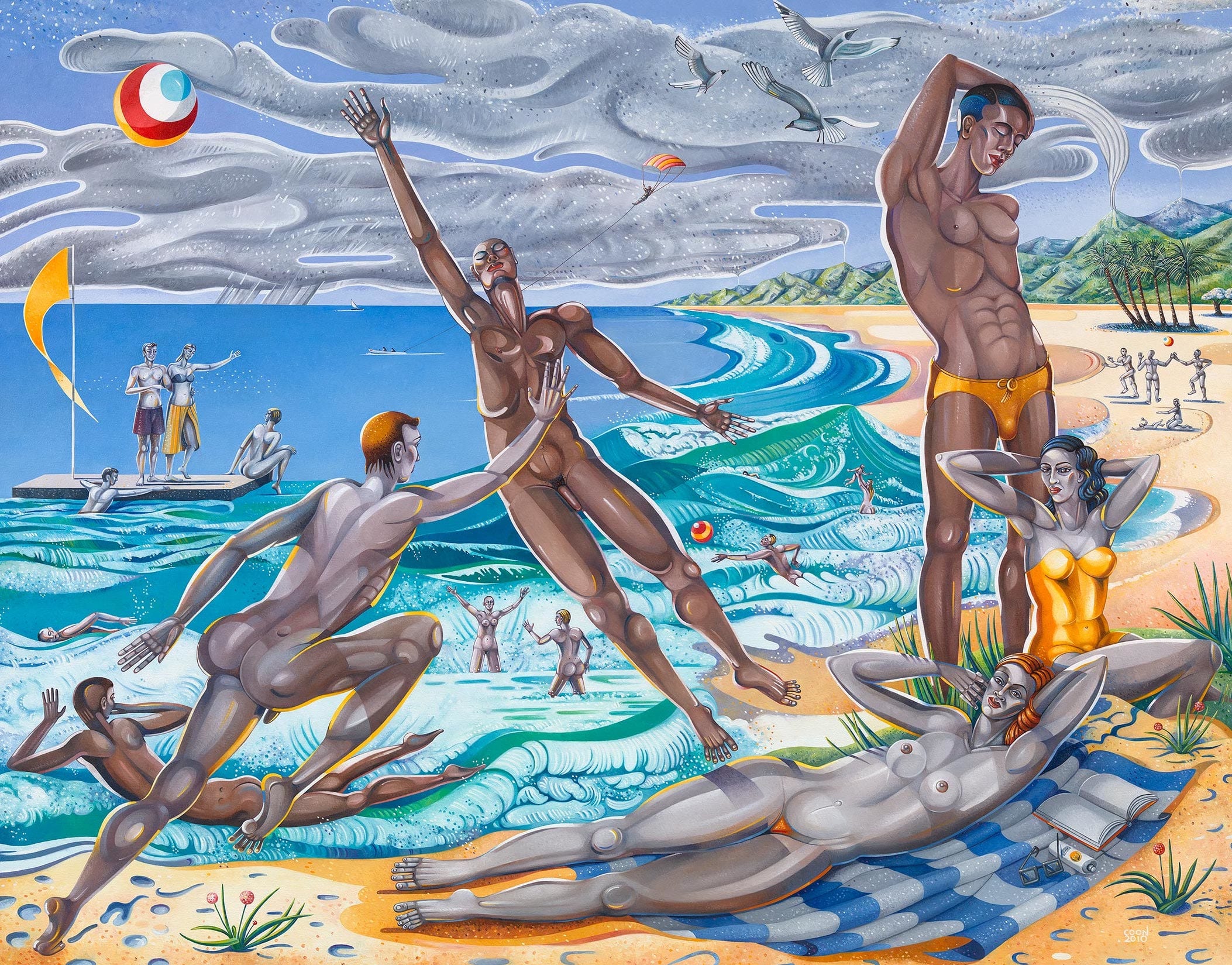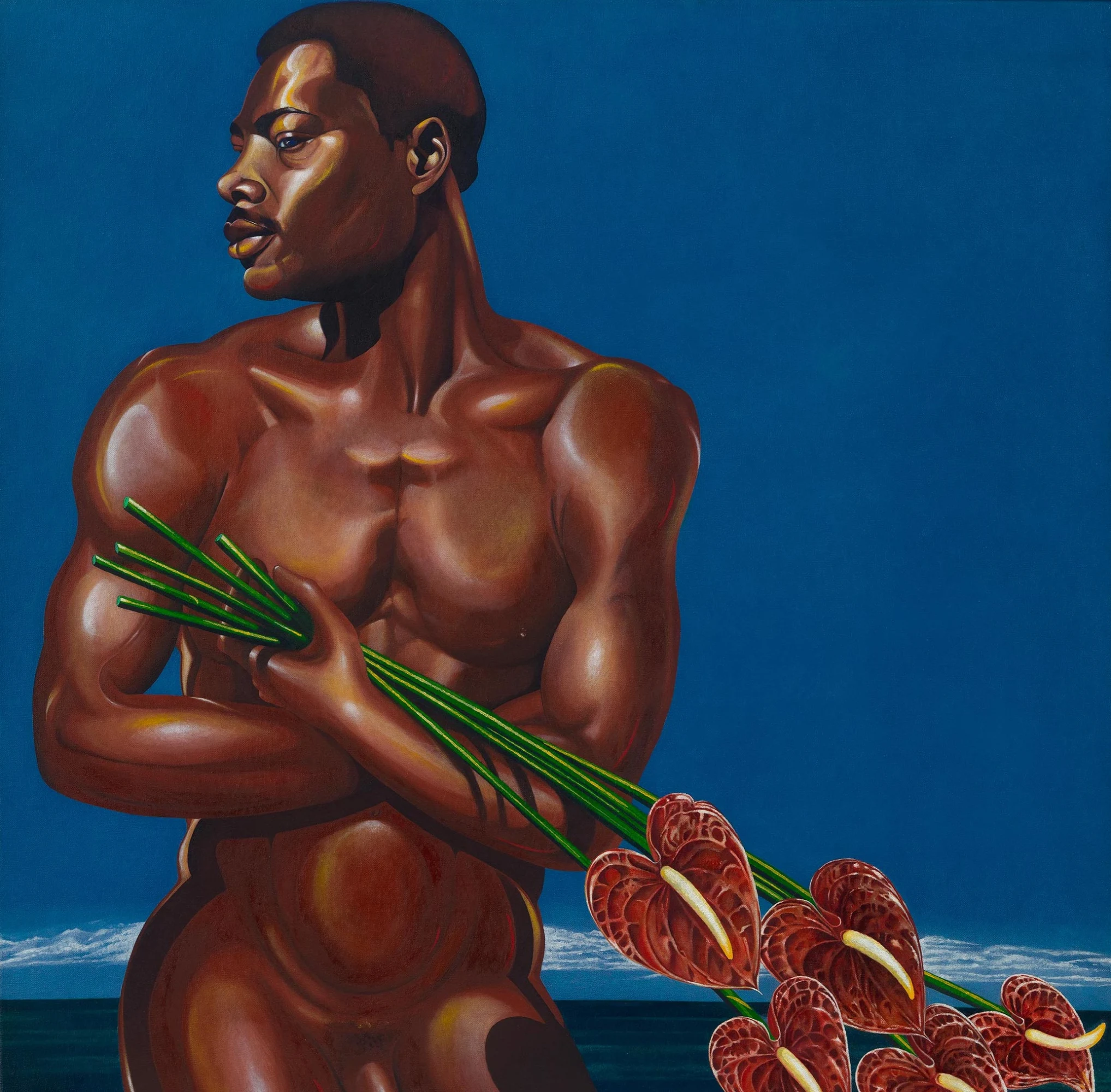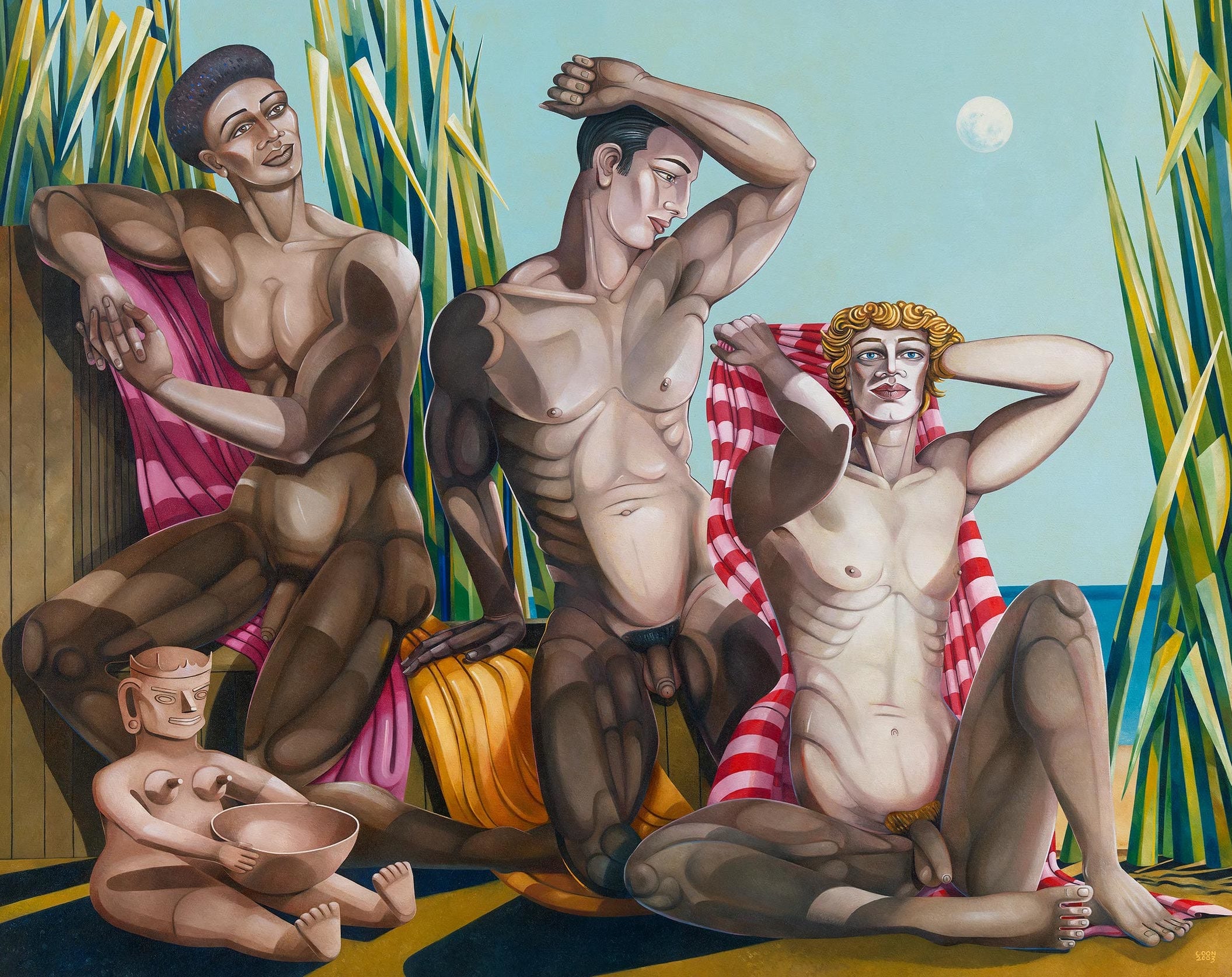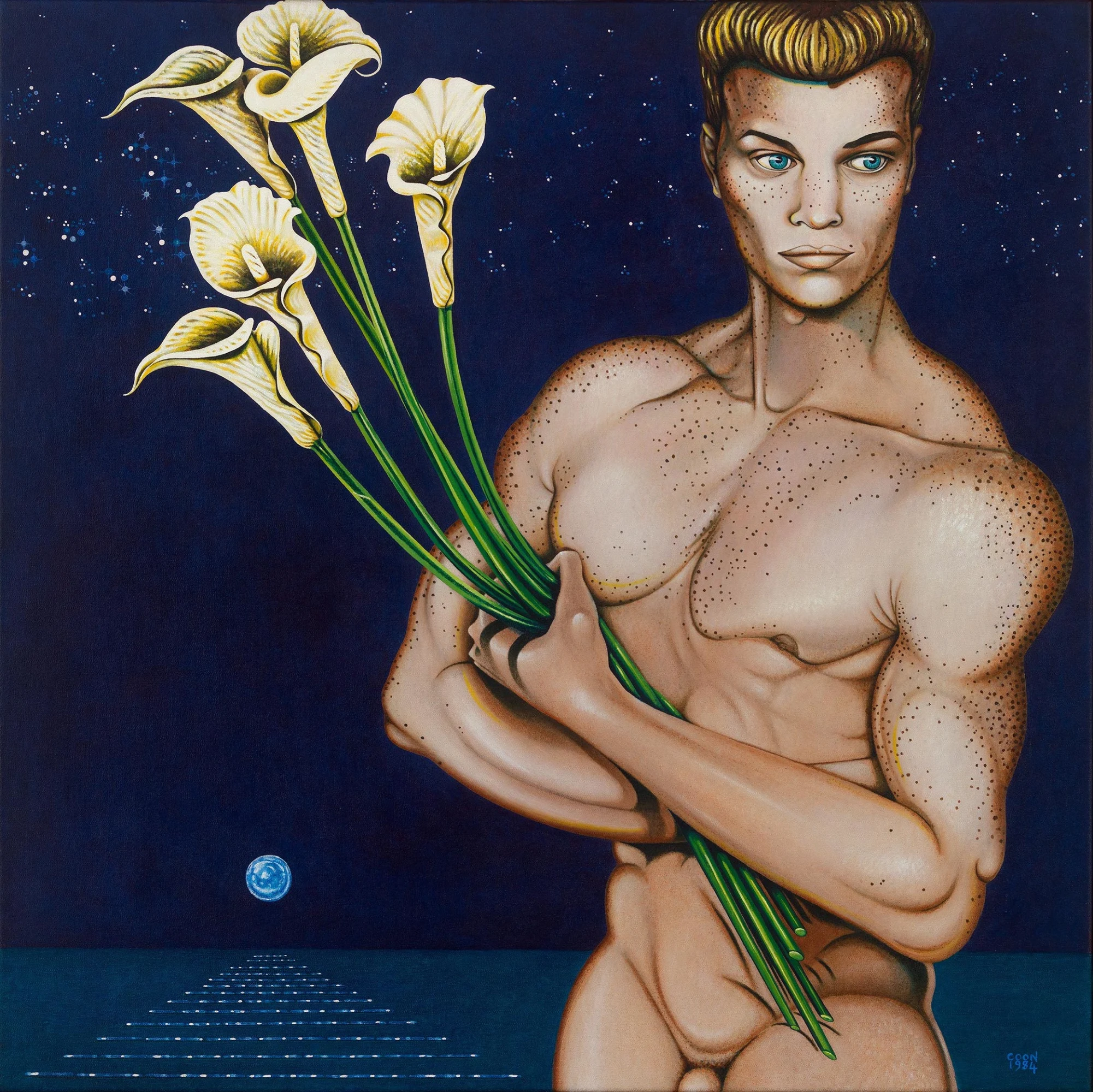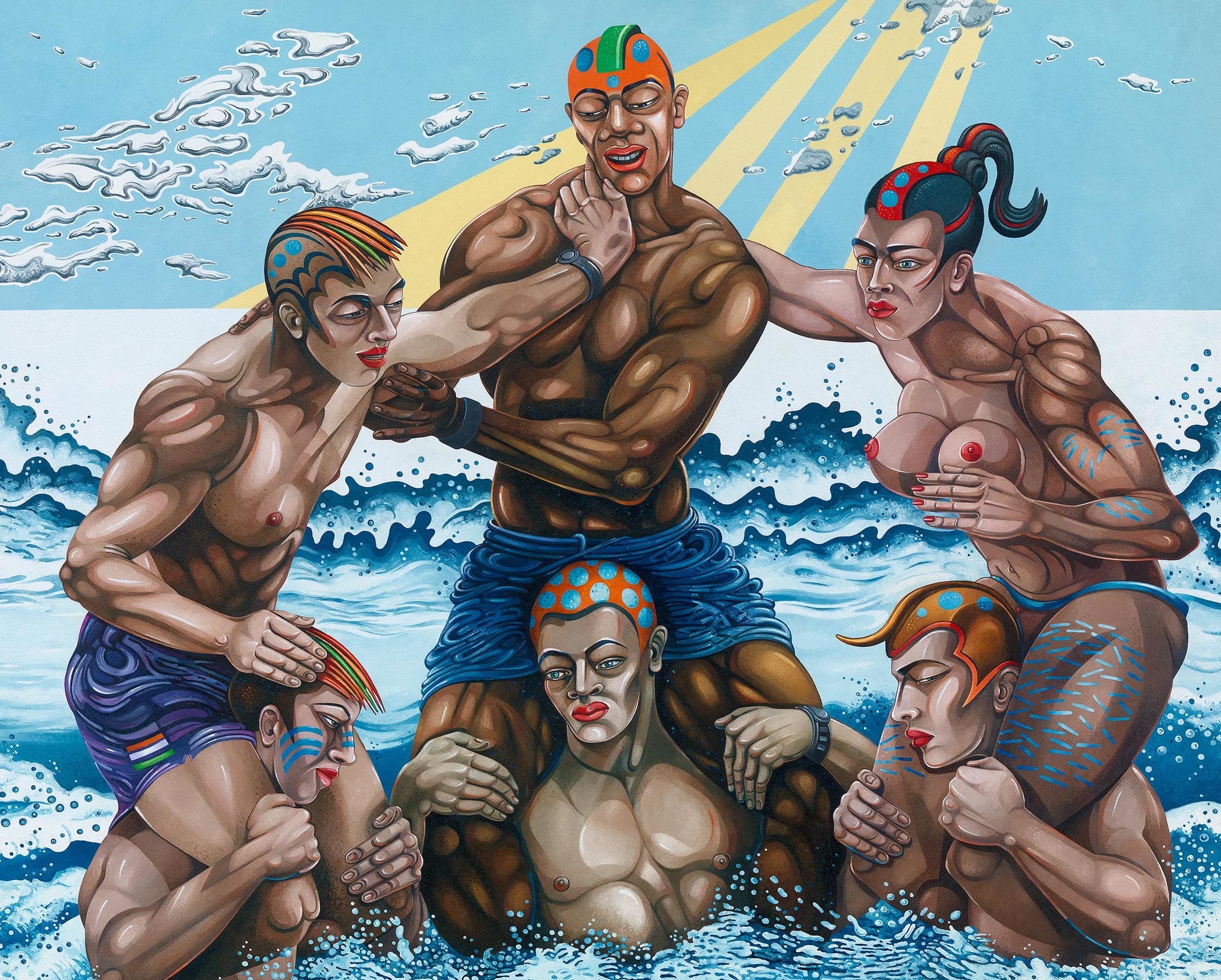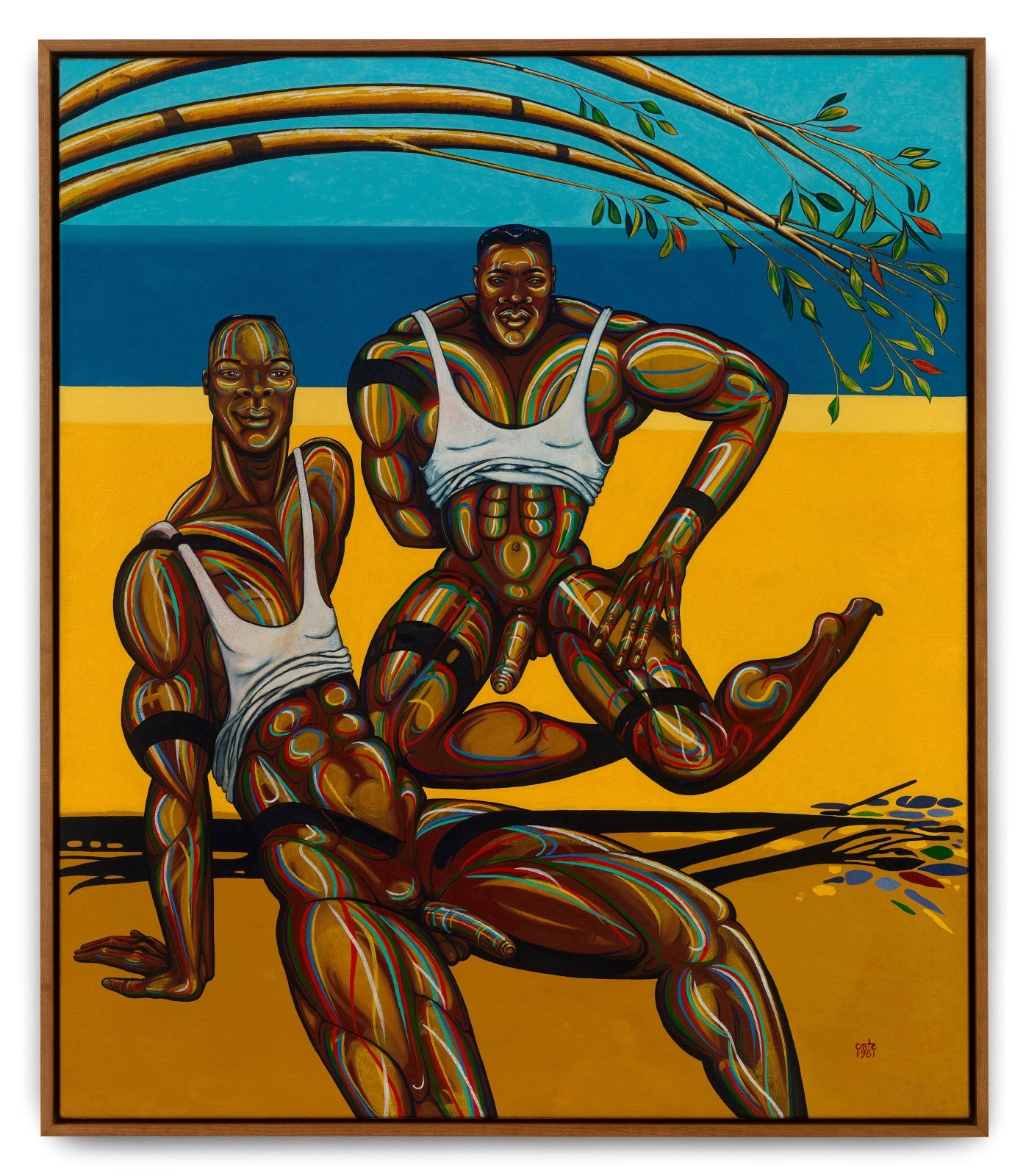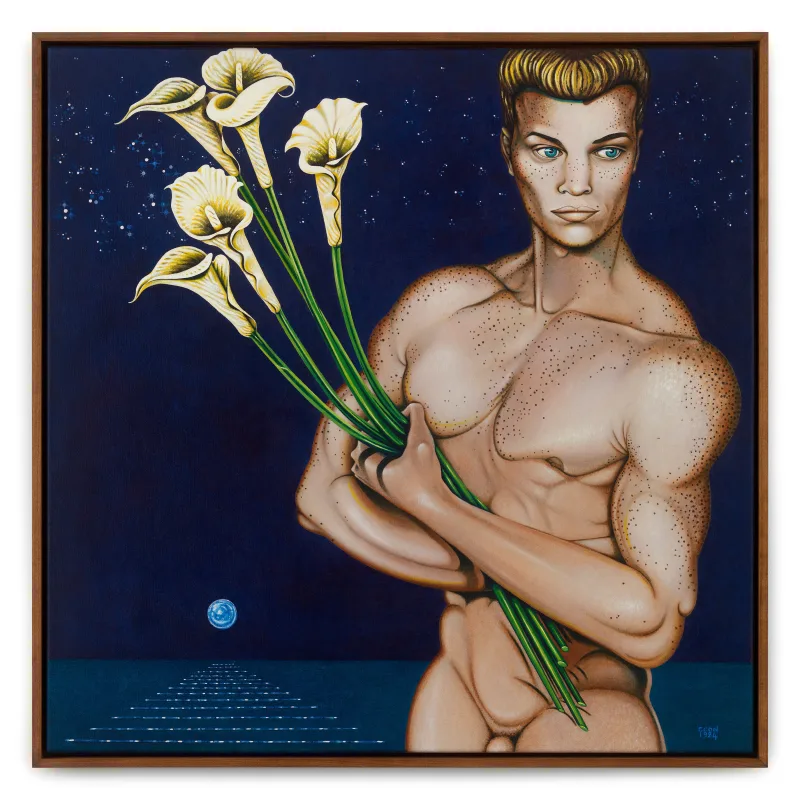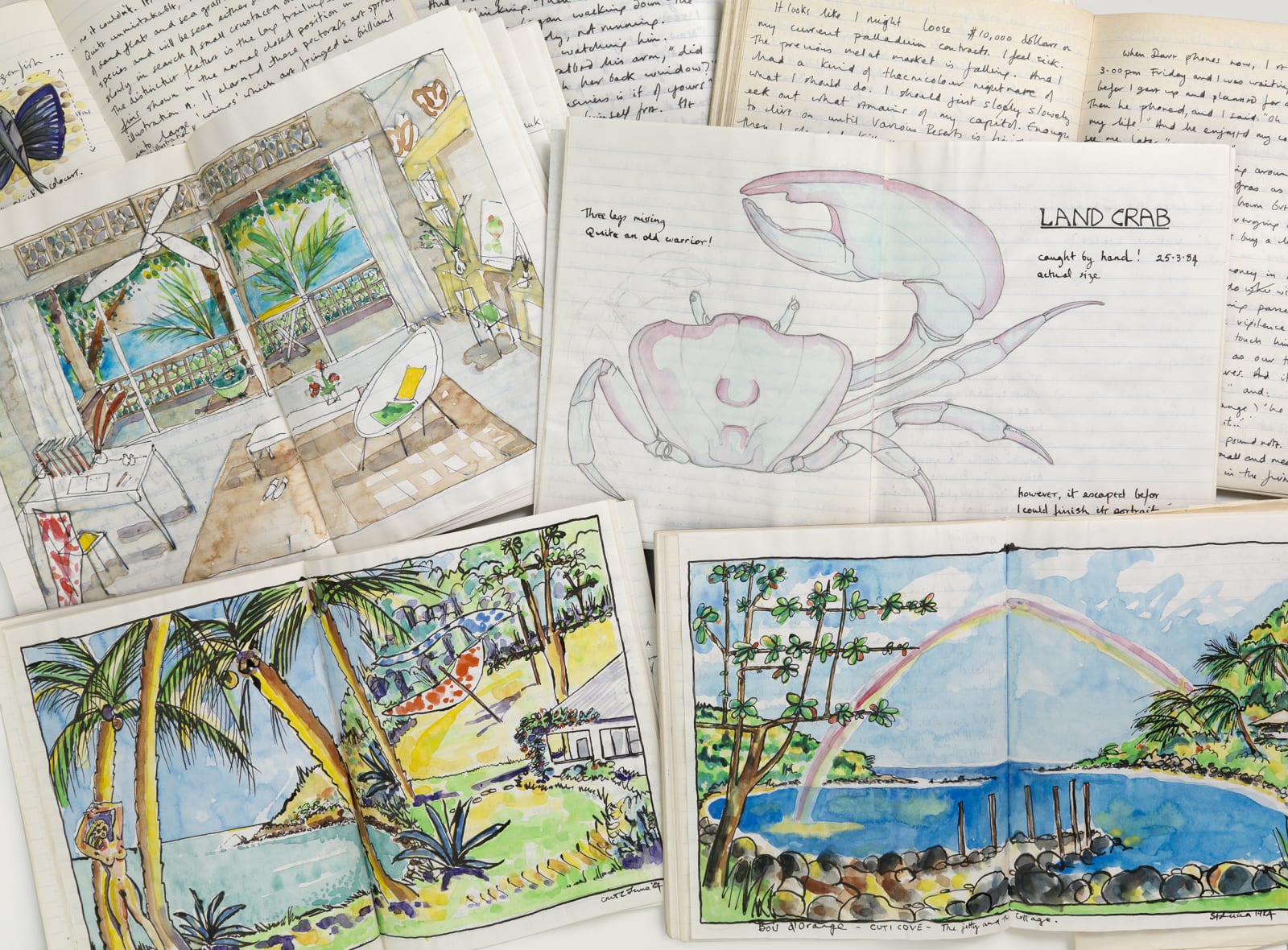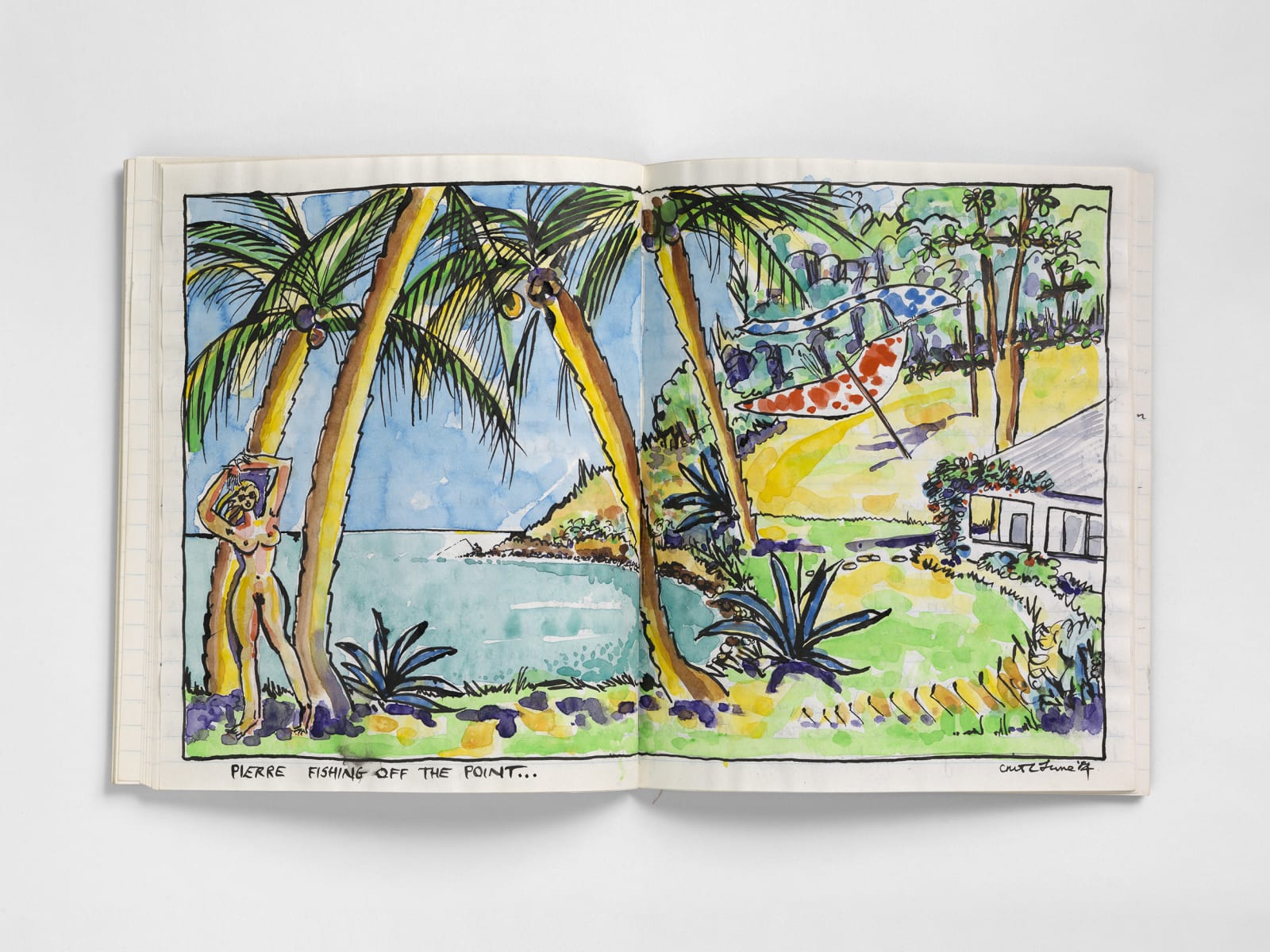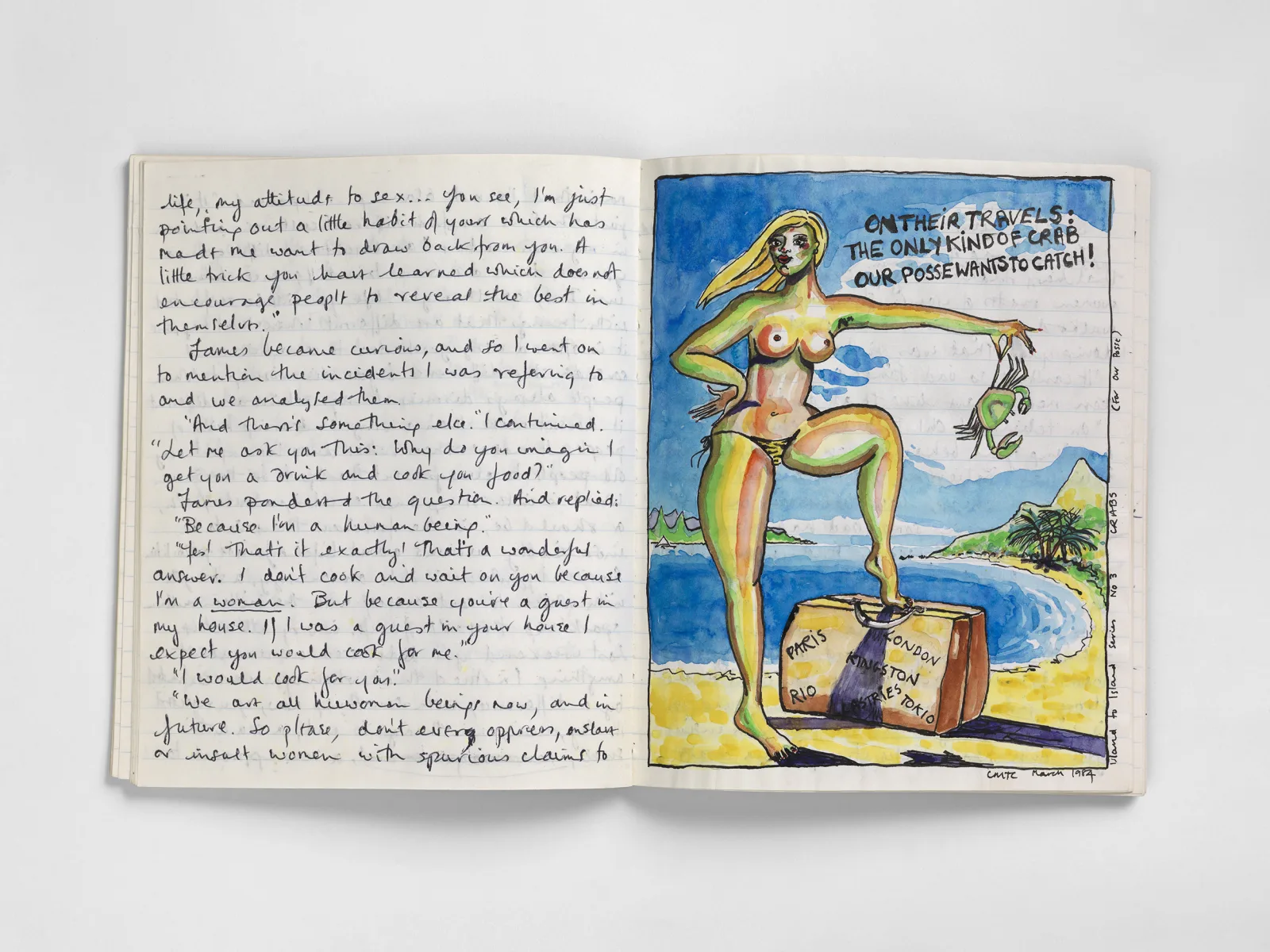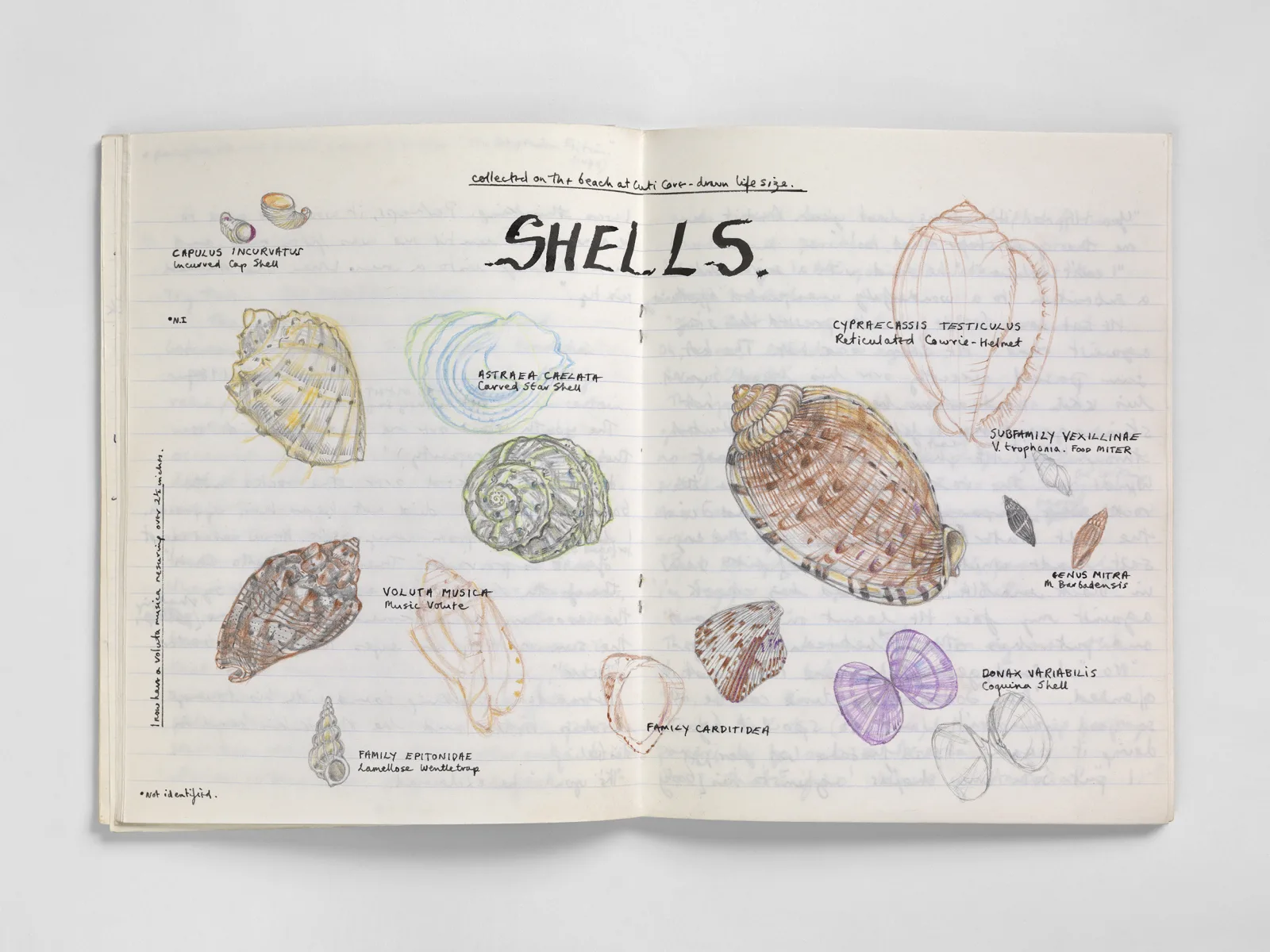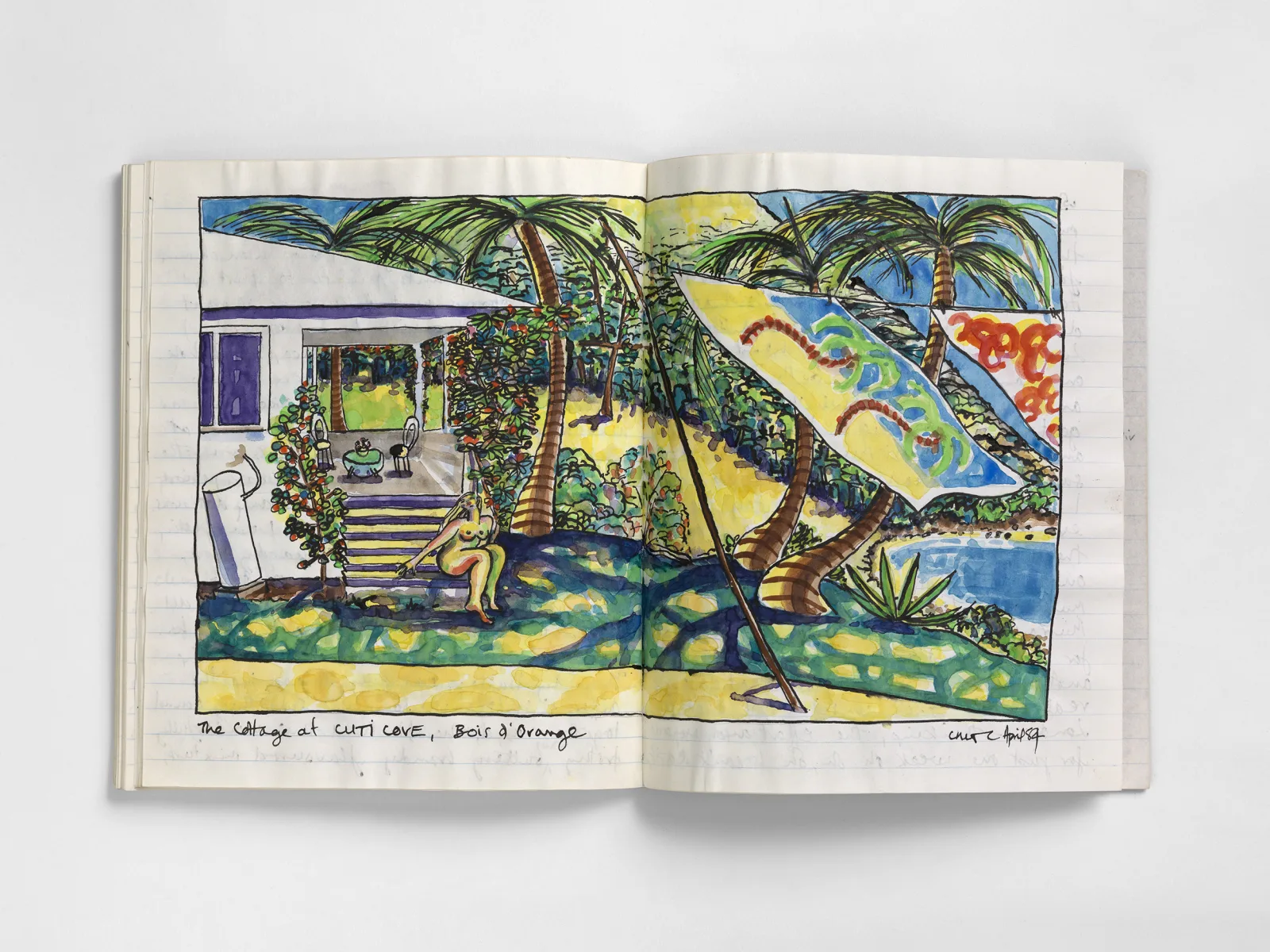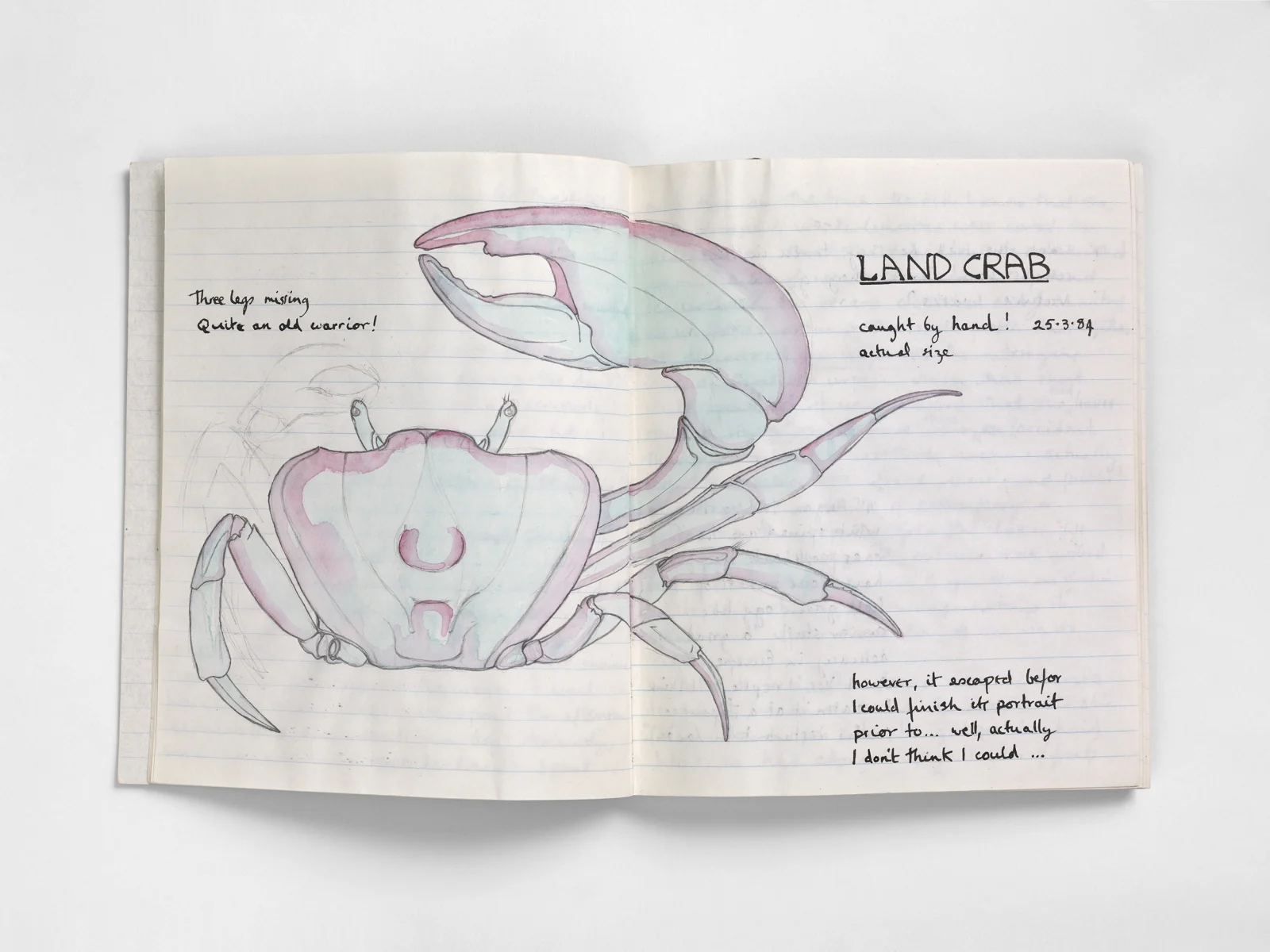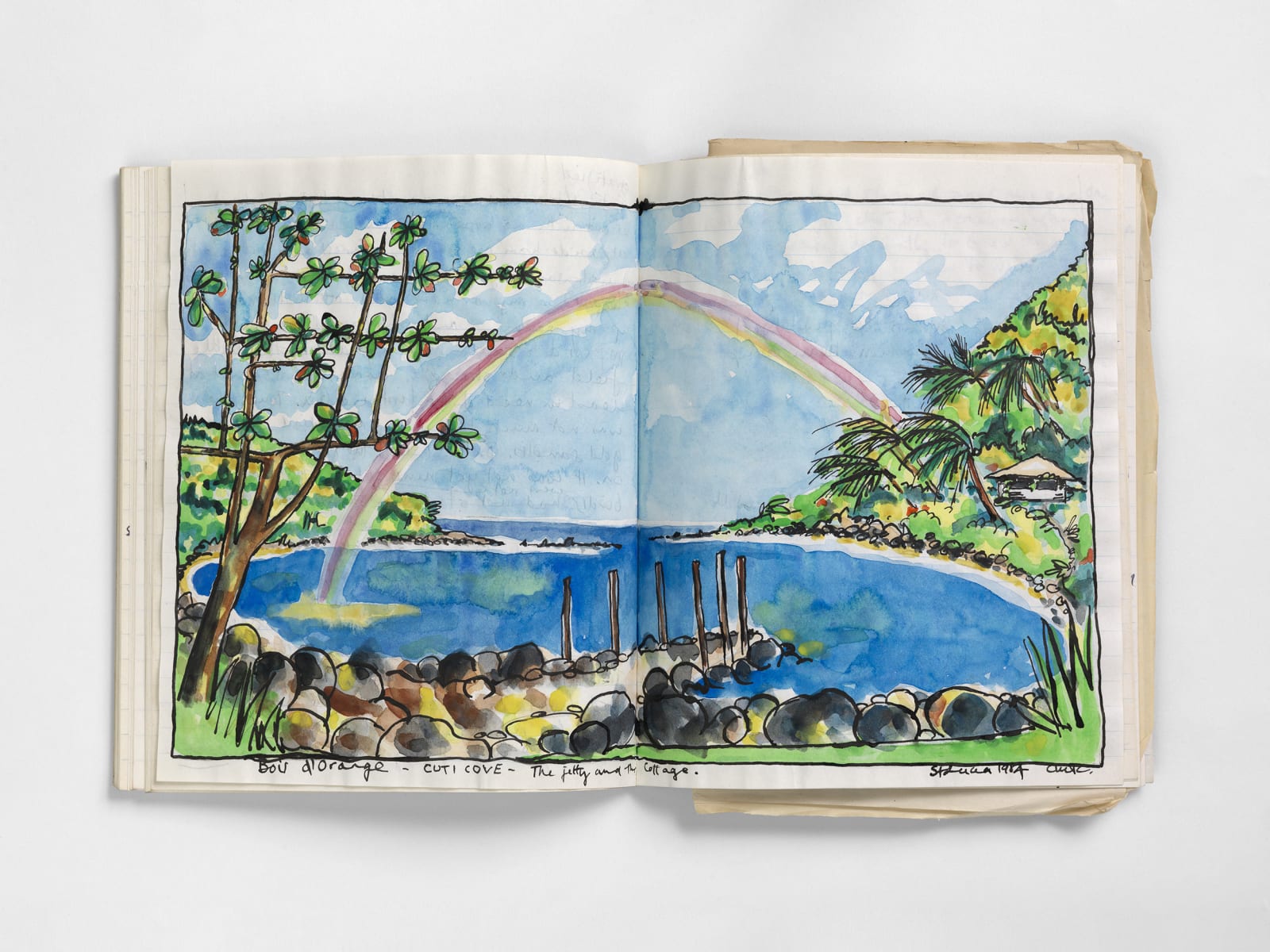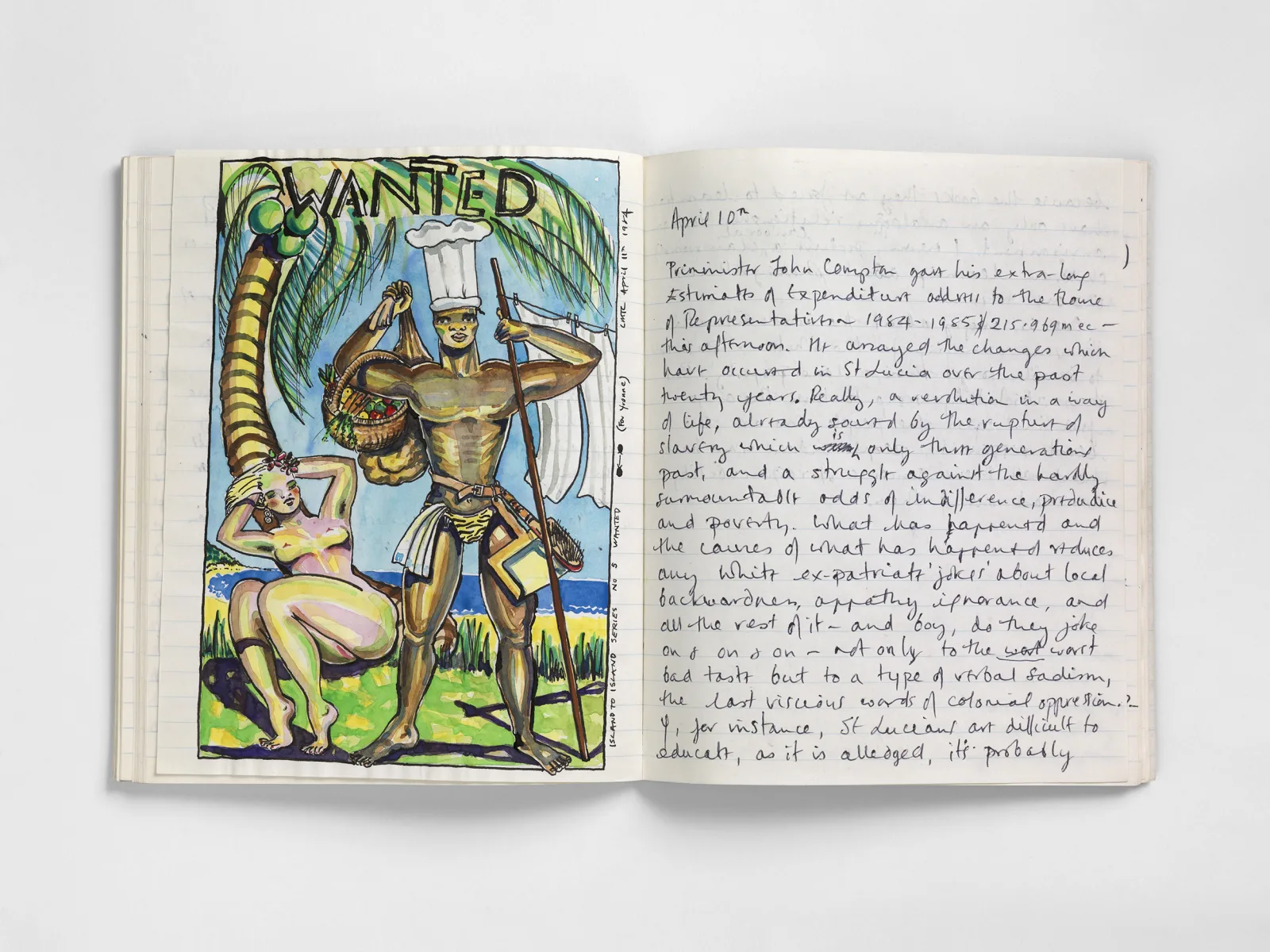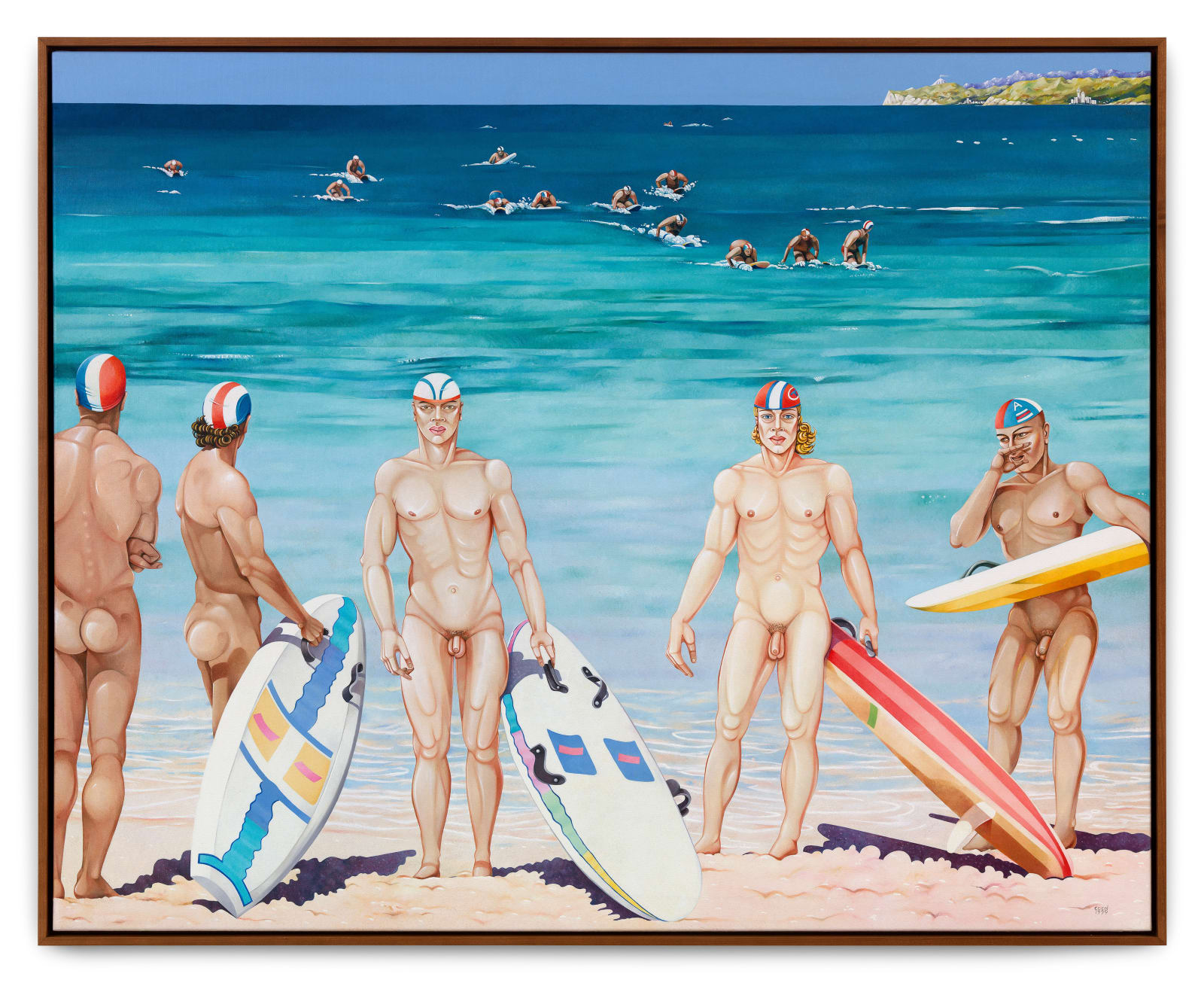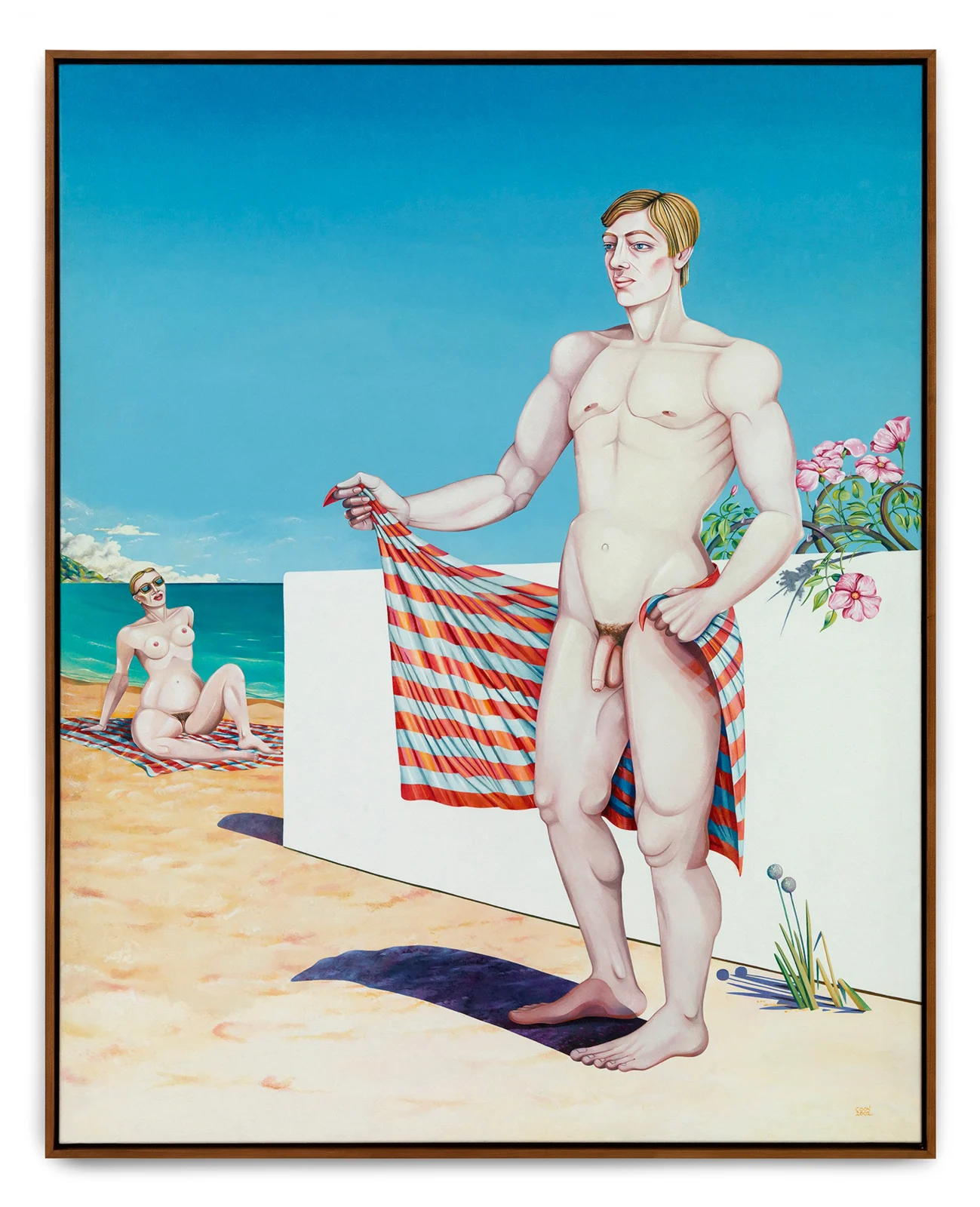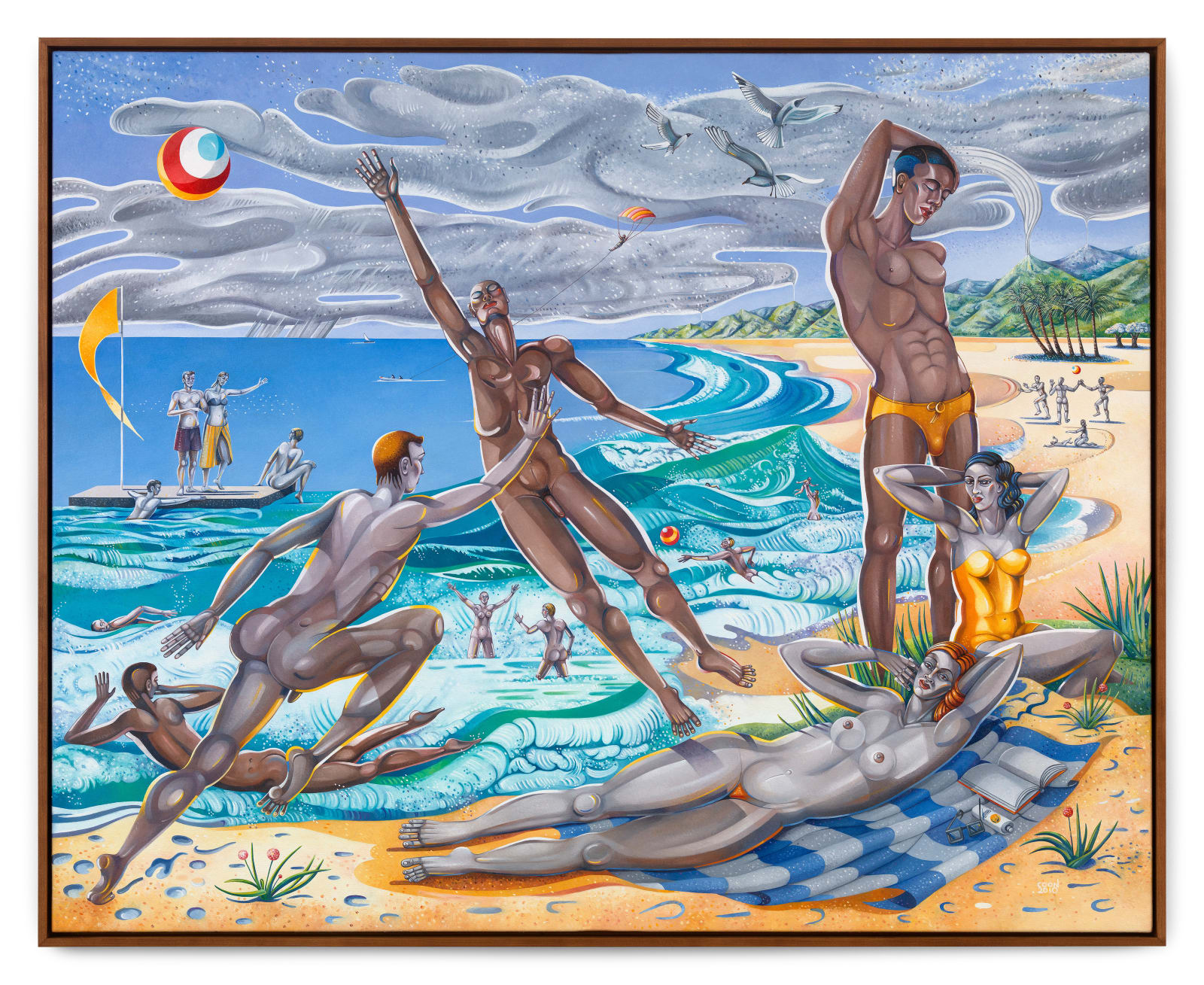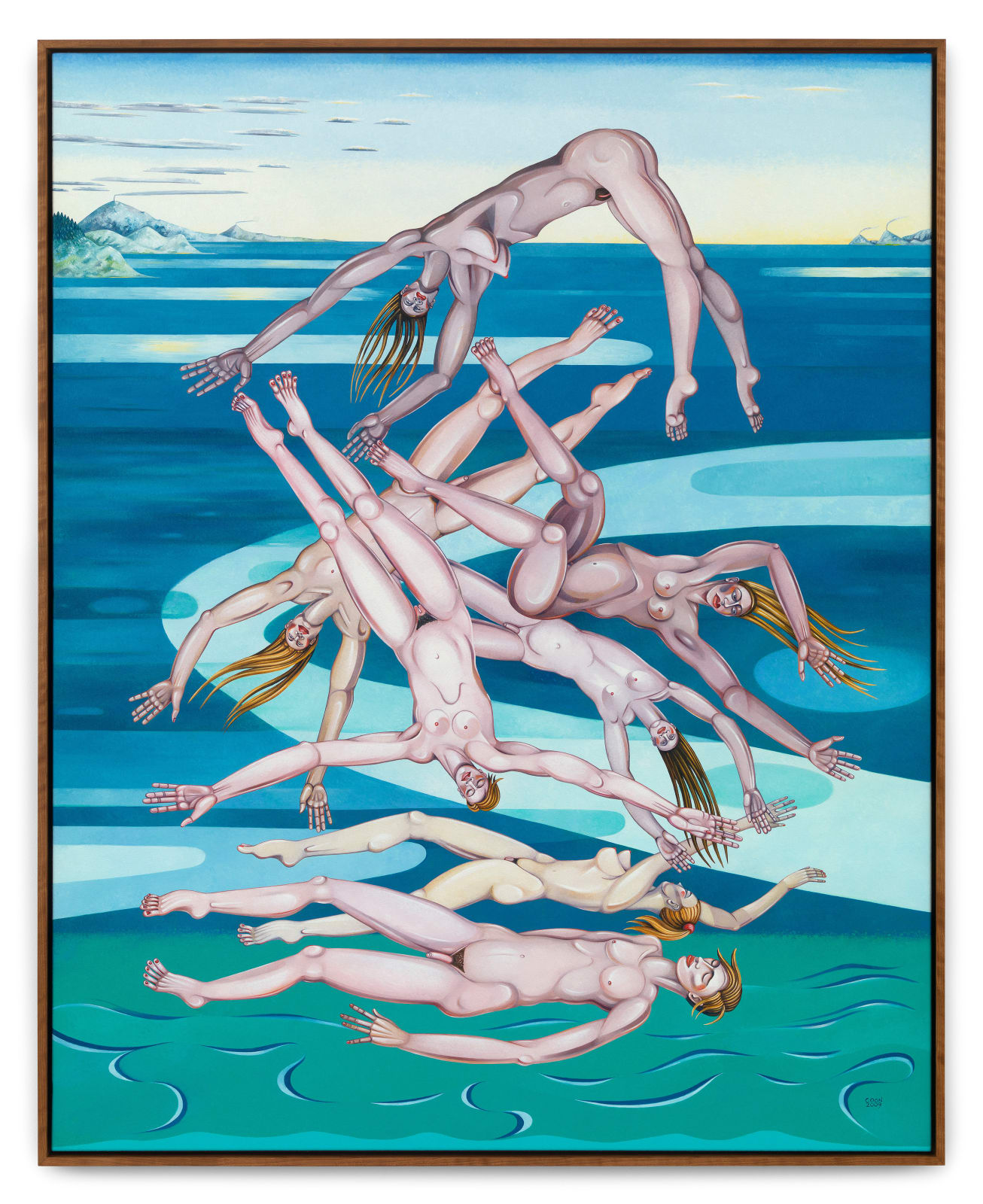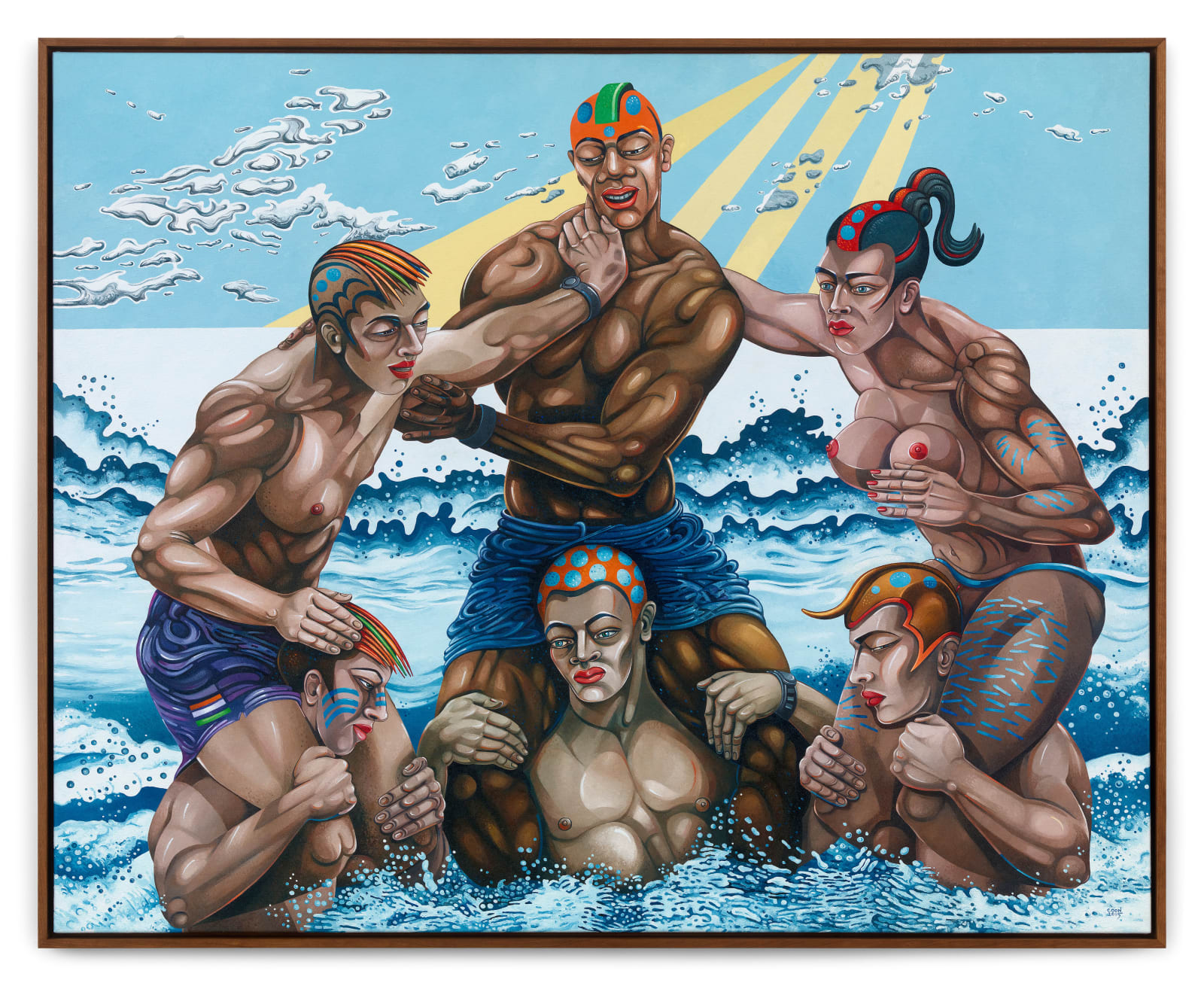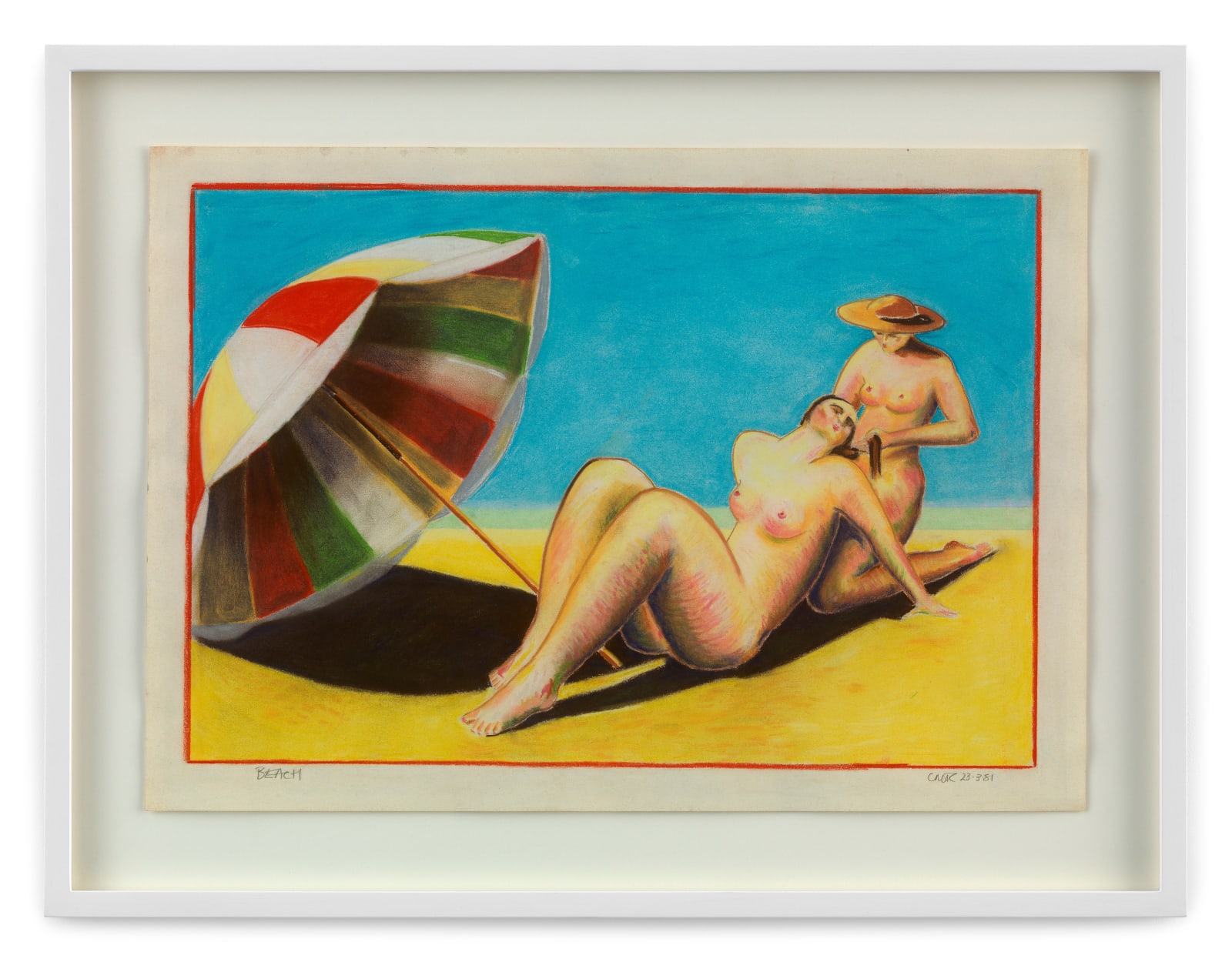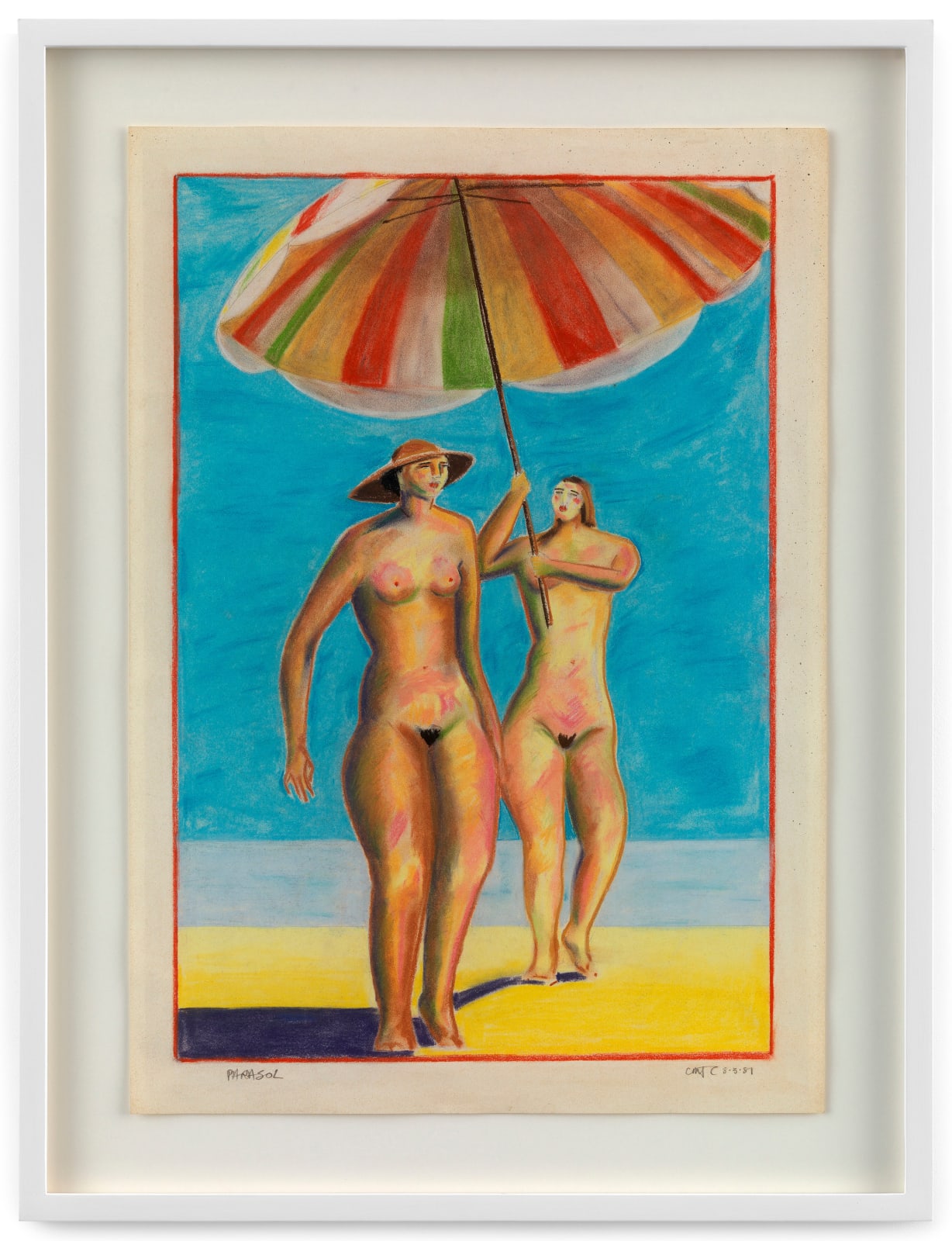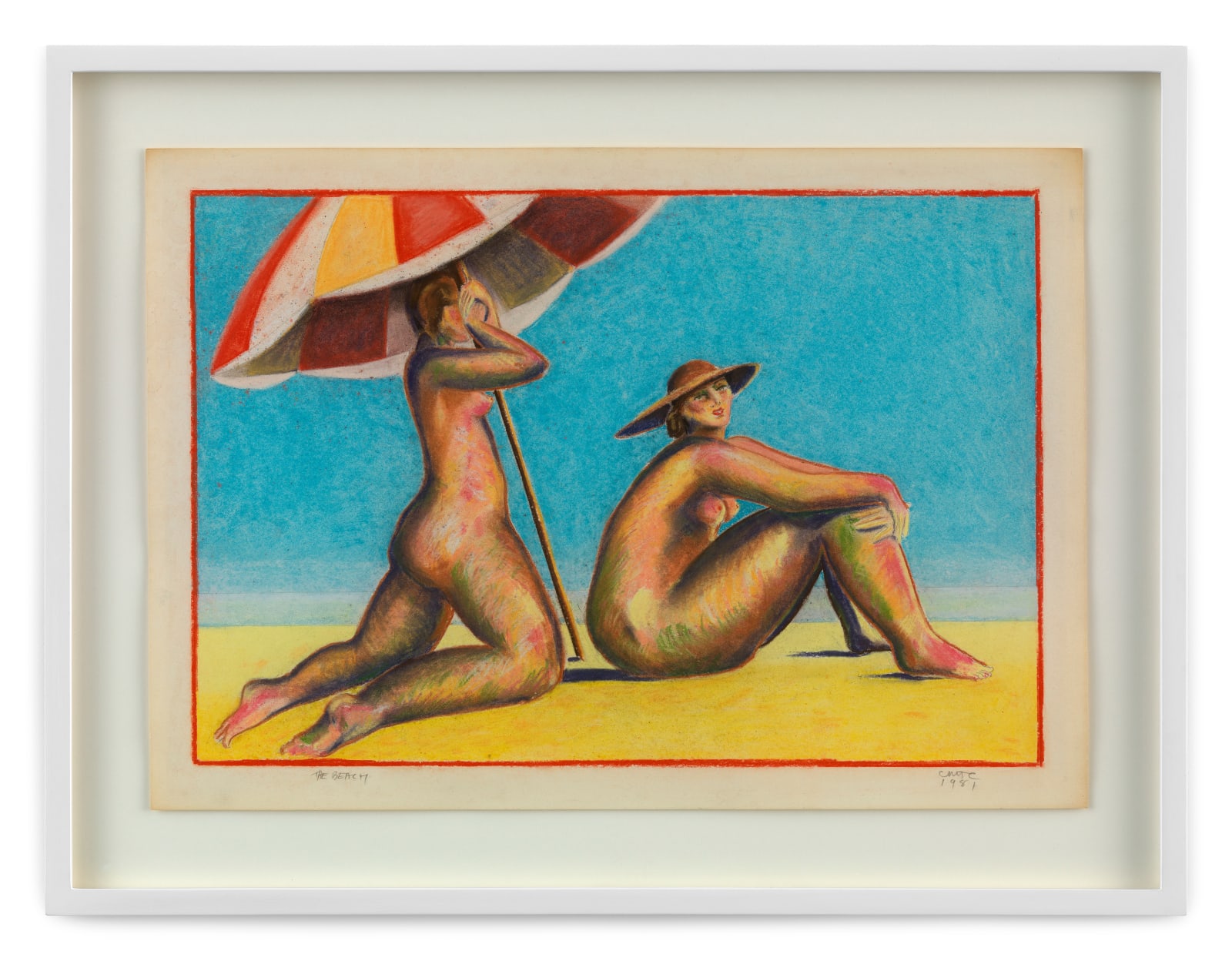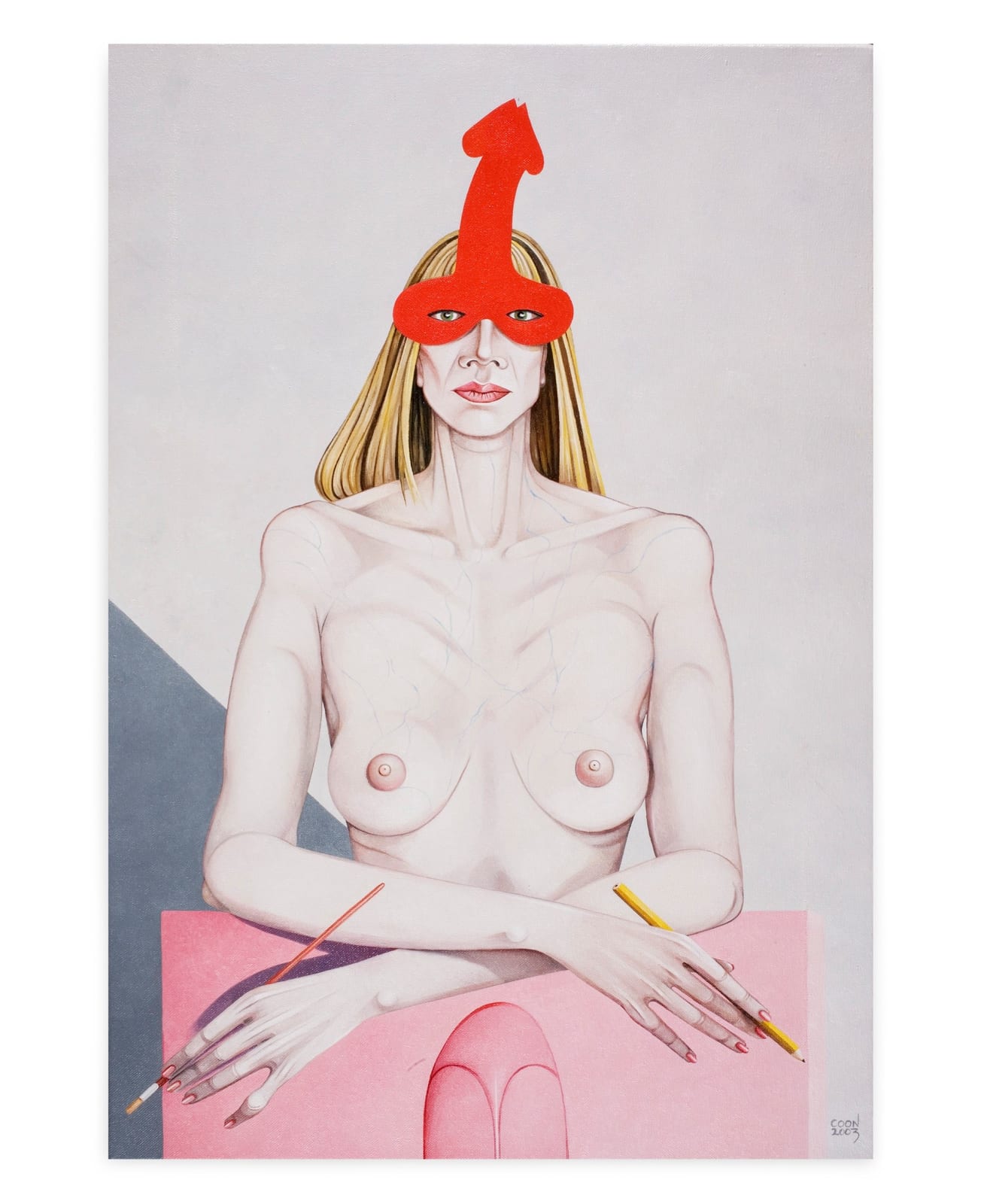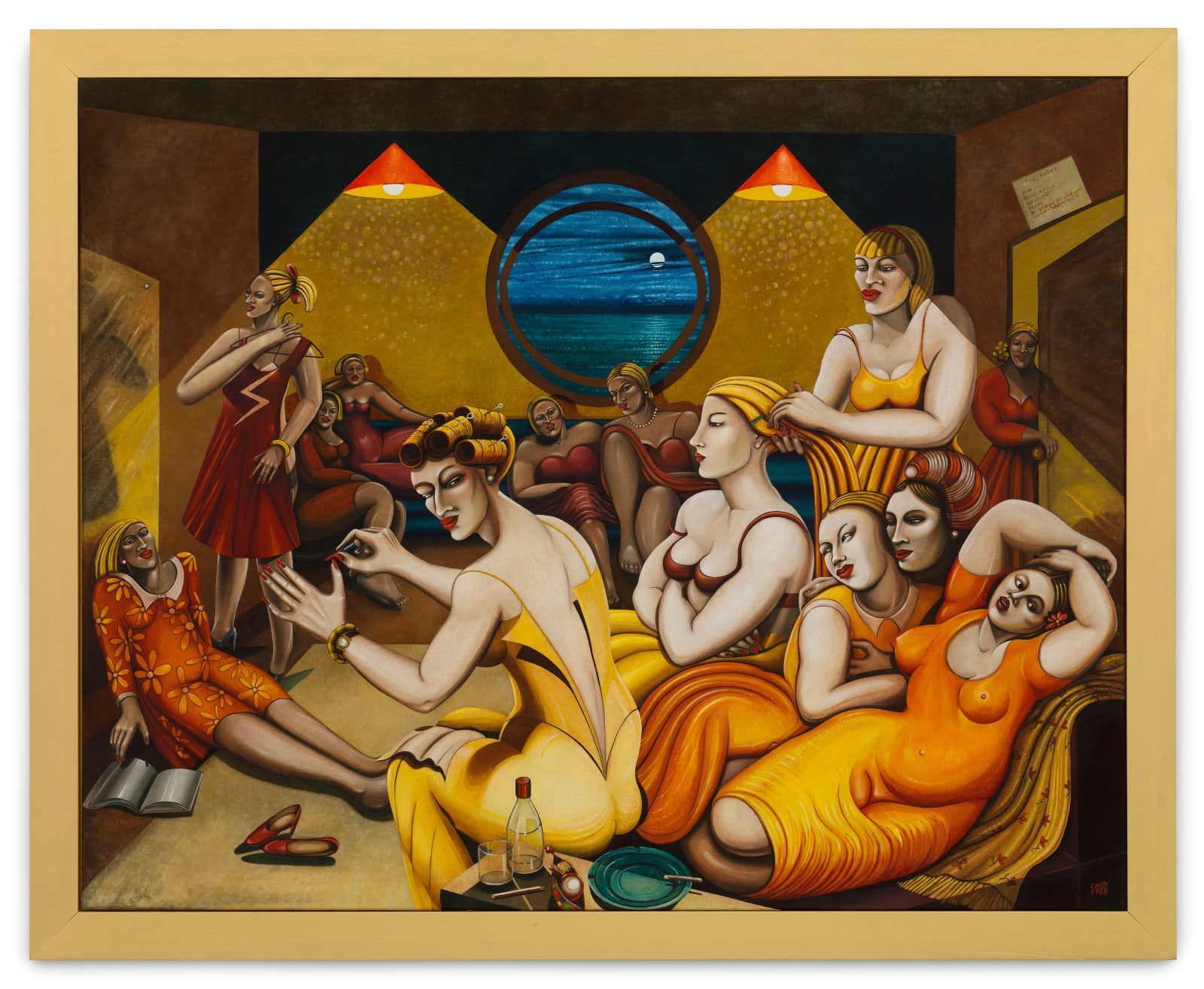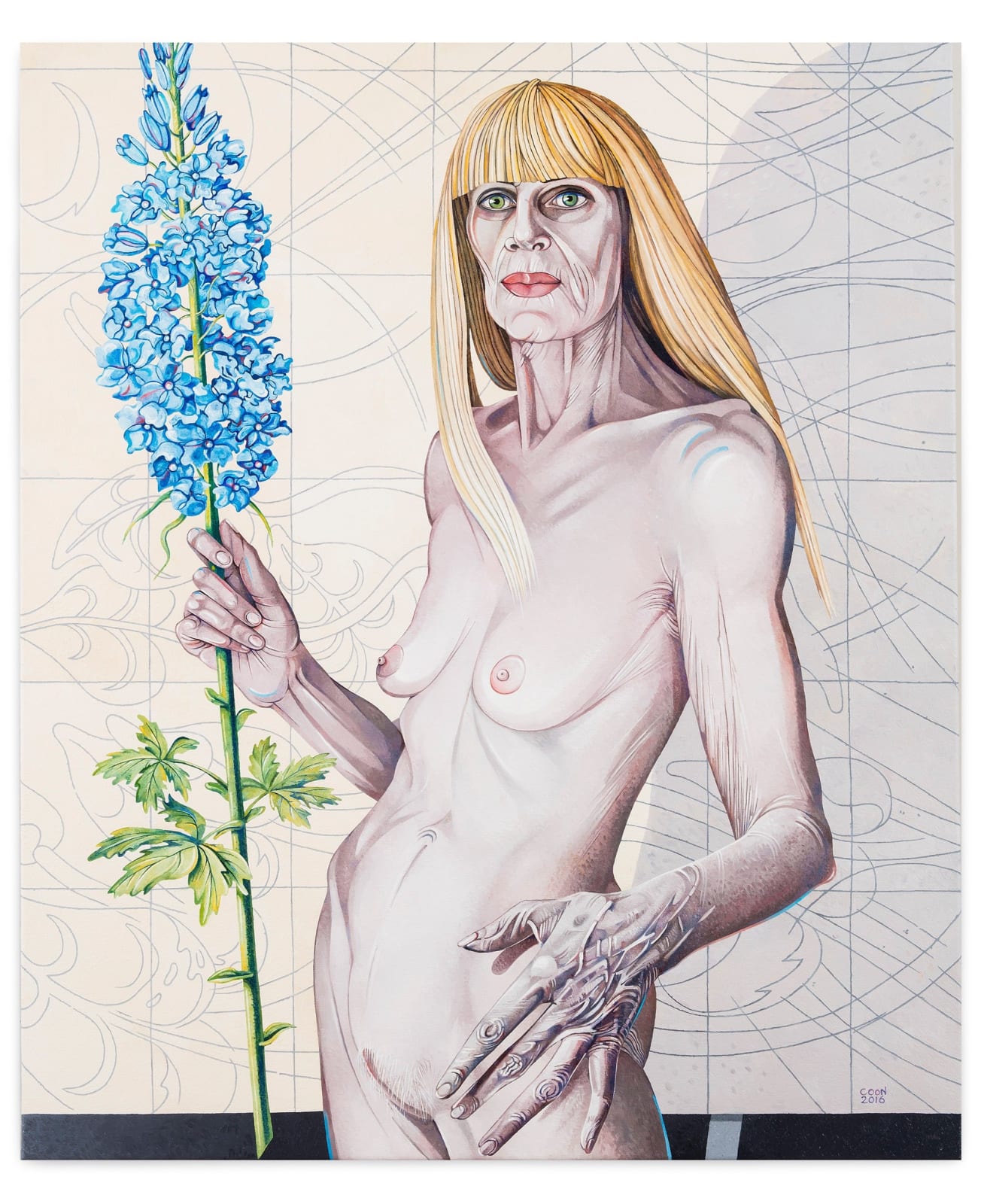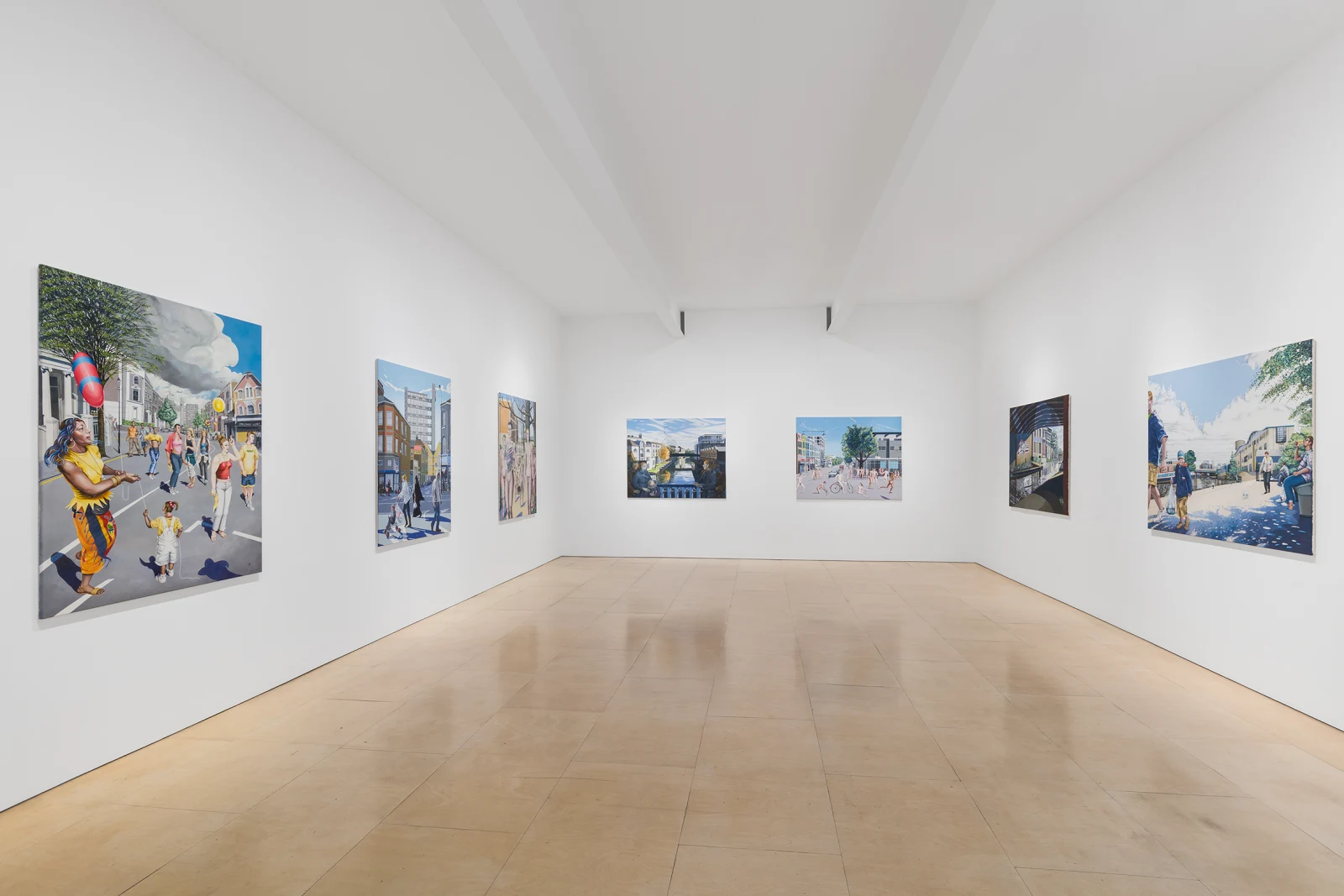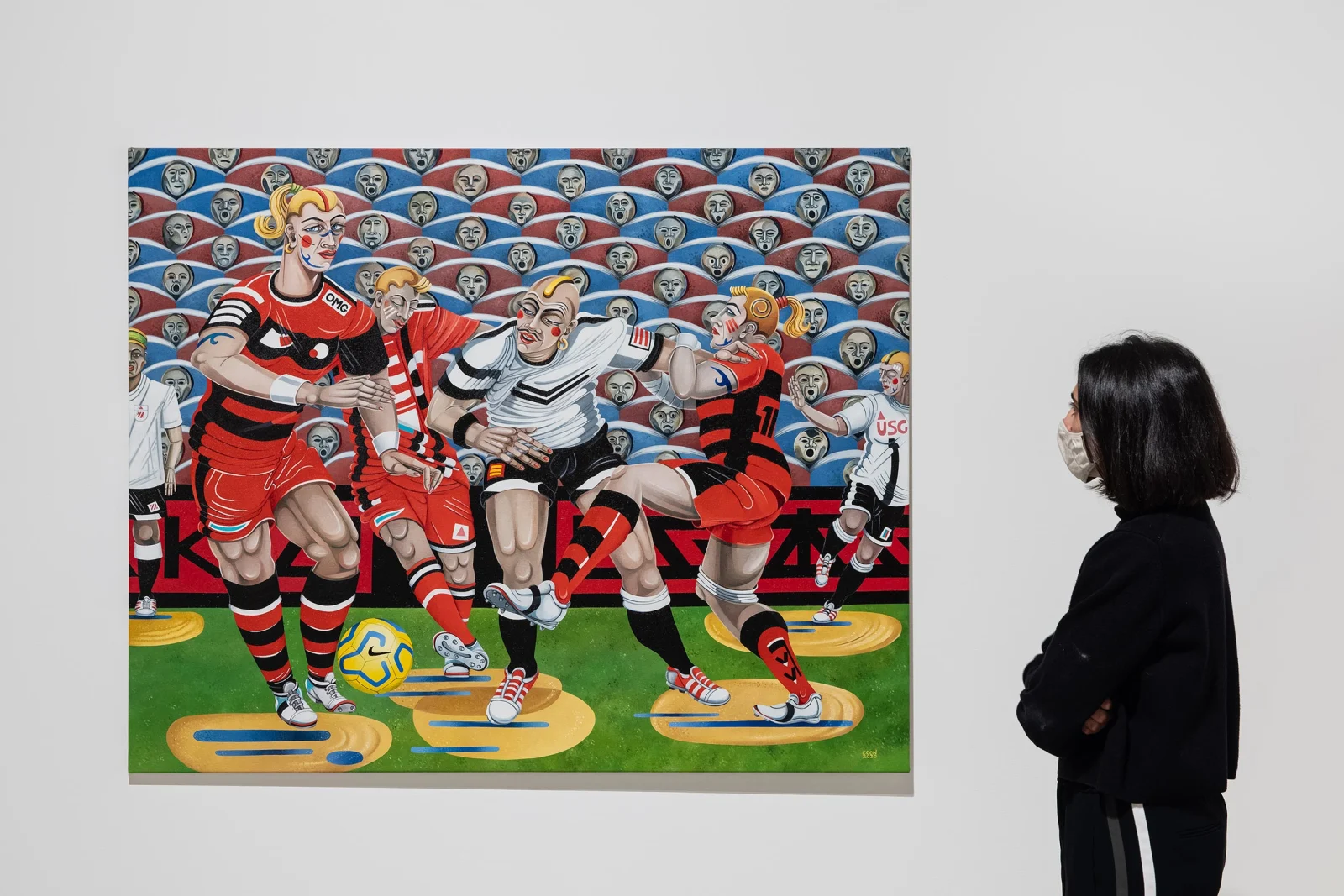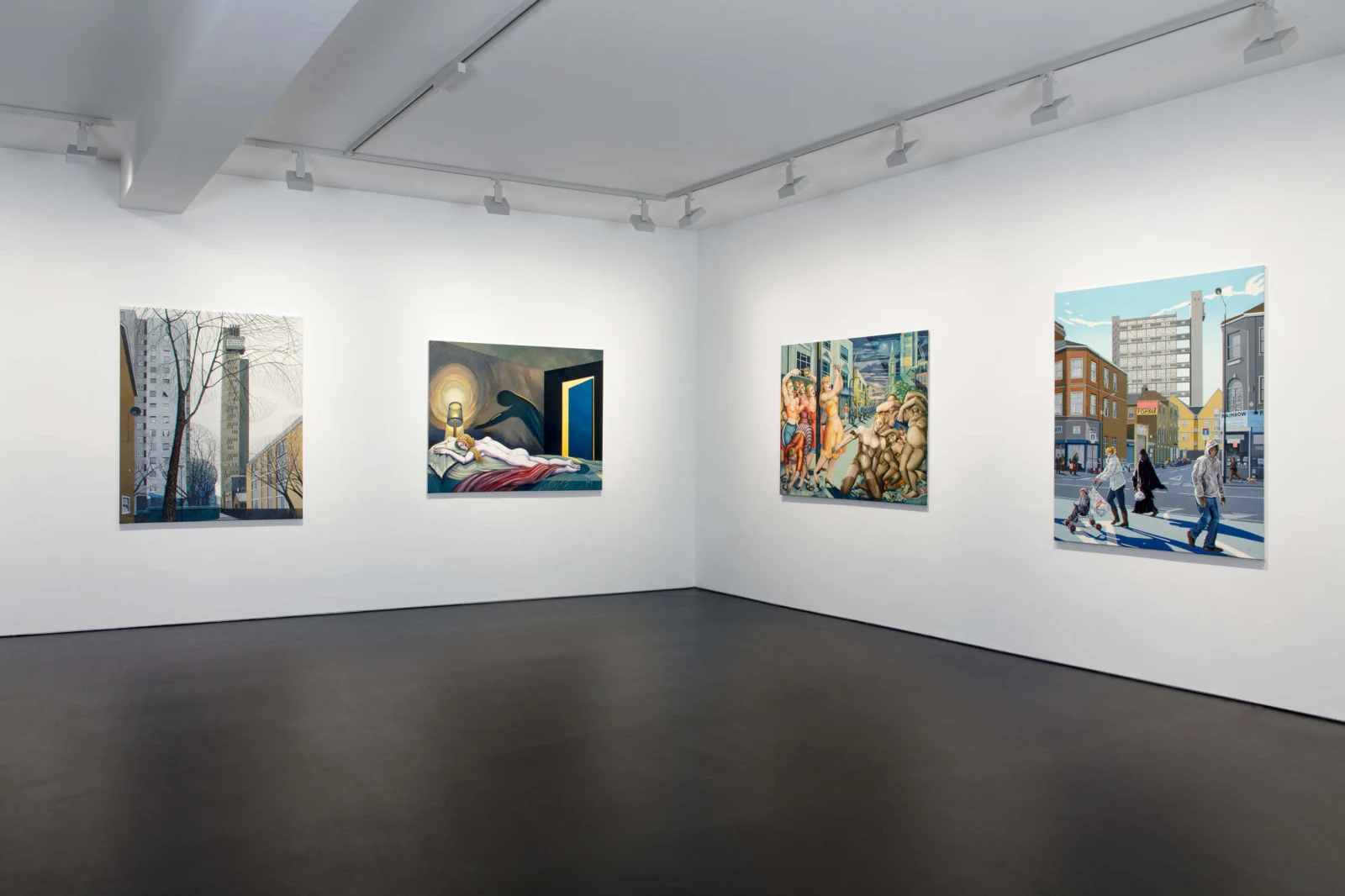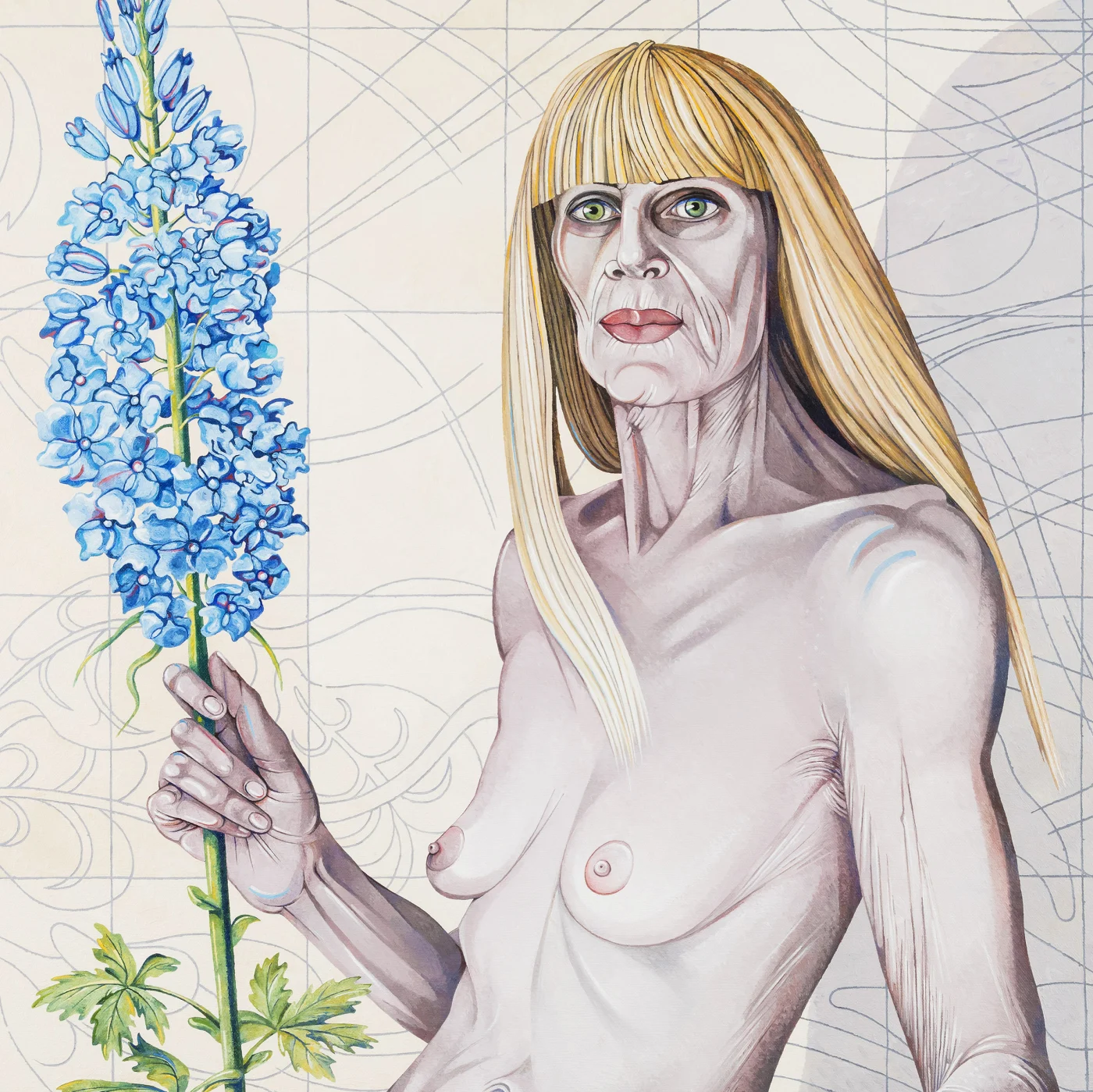Overview
A selection of paintings and works on paper by Caroline Coon, from 1981 to 2015, will be exhibited in Kabinett, Art Basel Miami Beach. Coon, who was a trailblazer of London’s counterculture, gained recognition for unique paintings that contest binary notions of gender and oppressive patriarchal values.
A selection of paintings and works on paper by Caroline Coon, from 1981 to 2015, will be exhibited in Kabinett, Art Basel Miami Beach. Coon, who was a trailblazer of London’s counterculture, gained recognition for unique paintings that contest binary notions of gender and oppressive patriarchal values.

“I consider these paintings to be manifestos”
Caroline Coon, In the Studio

!['I love the male physical form, and I protest the way male nudity is so often hidden from us. [...]...](https://artlogic-res.cloudinary.com/w_1400,h_1400,c_limit,f_webp,fl_lossy,q_auto:good/ws-stephenfriedman/usr/images/feature_panels/image/2085/coon-38.gif)
"I love the male physical form, and I protest the way male nudity is so often hidden from us. [...] With my male nudes, I hope to redress the balance. The male nude narrative, or story, in these beach themed paintings is definite, deliberate, obviously telling about human sexuality. A male nude painted by a woman artist can be particularly telling about female sexuality. I put him there for his pleasure, for sure. But more particularly I put him there for the delectation of the female gaze, for her pleasure.”
- Caroline Coon

“Pleasure is political”


“My paintings talk to the position of women in society - whatever our class or colour – what we are allowed to see or do or say, and what it means to interpret the world from a female point of view.”
Caroline Coon’s ‘The Beach’ is one of three chalk drawings, inspired by Robert Capa’s 1948 photograph of Pablo Picasso and his lover Françoise Gilot in Golfe-Juan, France. In Capa’s image, traditional gender roles play out as Picasso stands behind Gilot in a protective stance – holding a large umbrella over her head. Here, Coon replaces the famous artist with a second nude woman. Coon’s subjects are shaded in vibrant hues of pink, yellow and green, evoking the sense they are at one with the natural landscape. “For me”, Coon explains, “the beach represents a paradise, where land meets and sea, where naked flesh touches air and water and all life on Earth is one (and skin becomes land as ‘skinscape’)”.

